The Brief
ENGINEERING FOR GLOBAL IMPACT
AT NORTHEASTERN UNIVERSITY

K-20 STEM Educational Ecosystem


K-20 STEM Educational Ecosystem
Building the STEM (Science, Technology, Engineering, and Mathematics) pipeline requires an ongoing, multifaceted continuum of programming and support throughout the student’s educational journey, from kindergarten through the college years. Partnerships between universities, community colleges, and elementary and high schools are critical for success as are collaborations with industry and government organizations.
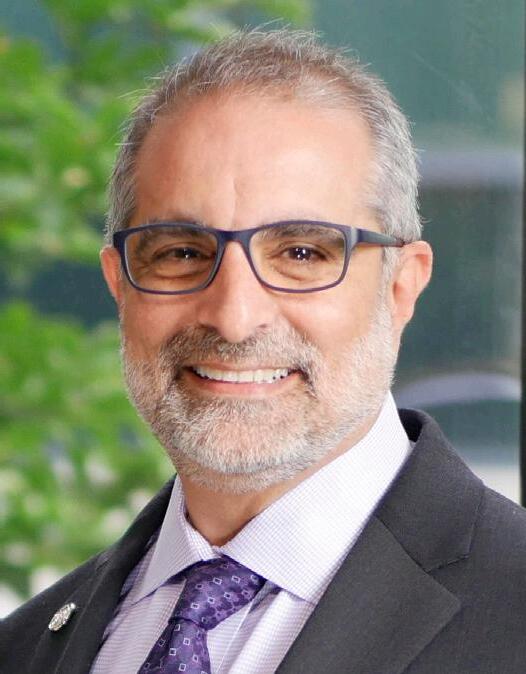
For nearly 40 years, the Michael B. Silevitch and Claire J. Duggan Center for STEM Education has been dedicated to building and supporting a community of educators, researchers, and students to strengthen the K-20 STEM educational ecosystem. In doing so, it has made an impact on the lives of a countless number of students, and created a culture of giving back to support the next generation.
Read on to learn more, and I invite you to reach out with ideas for collaboration and more information.
Kind regards,
Gregory D. Abowd, D.Phil. Dean of the College of Engineering Northeastern Universitycoe.northeastern.edu

The Michael B. Silevitch and Claire J. Duggan Center for STEM Education
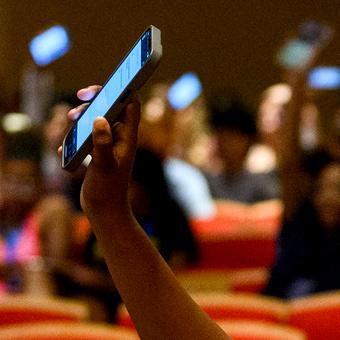
Summer Bridge Scholars Program Sets Stage for Student Success

Nurturing Engineering Students to Reach Their Full Potential
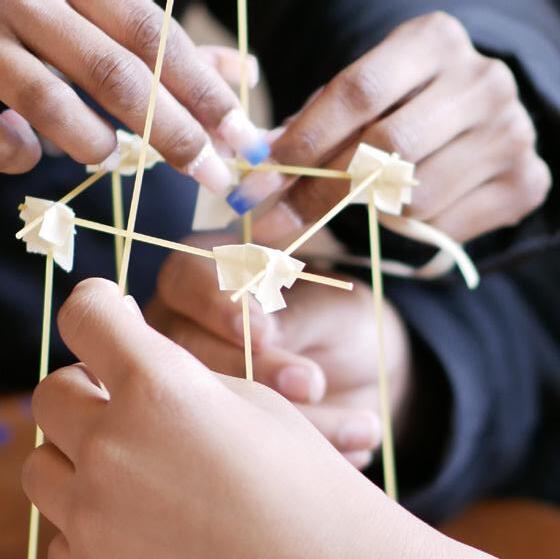
Opening Eyes Early to the World of STEM

Smoothing the Transition to Engineering for Community College Students
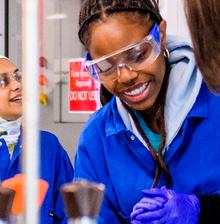
Fostering the Next Generation with a Continuum of Support

Creating Systemic Change at Scale Together
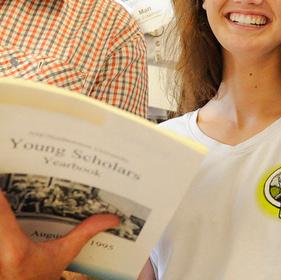
Young Scholars Program Inspires Rising High School Seniors

Powerful Blueprint to Equalize Opportunities for Underrepresented Students
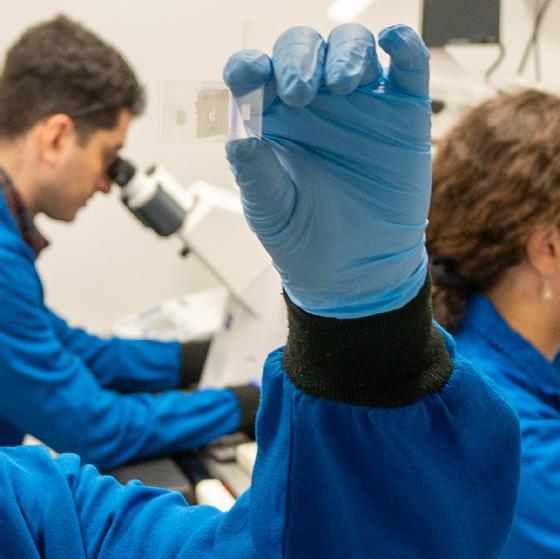
Fueling the Broader Impact of Research to Benefit Society
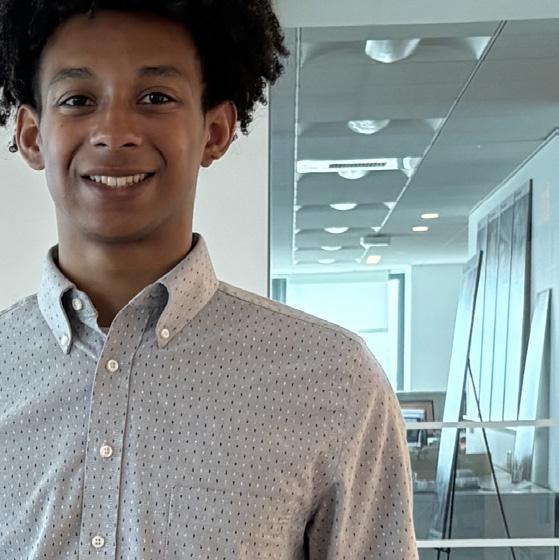
A Full Cycle of Support and Opportunities
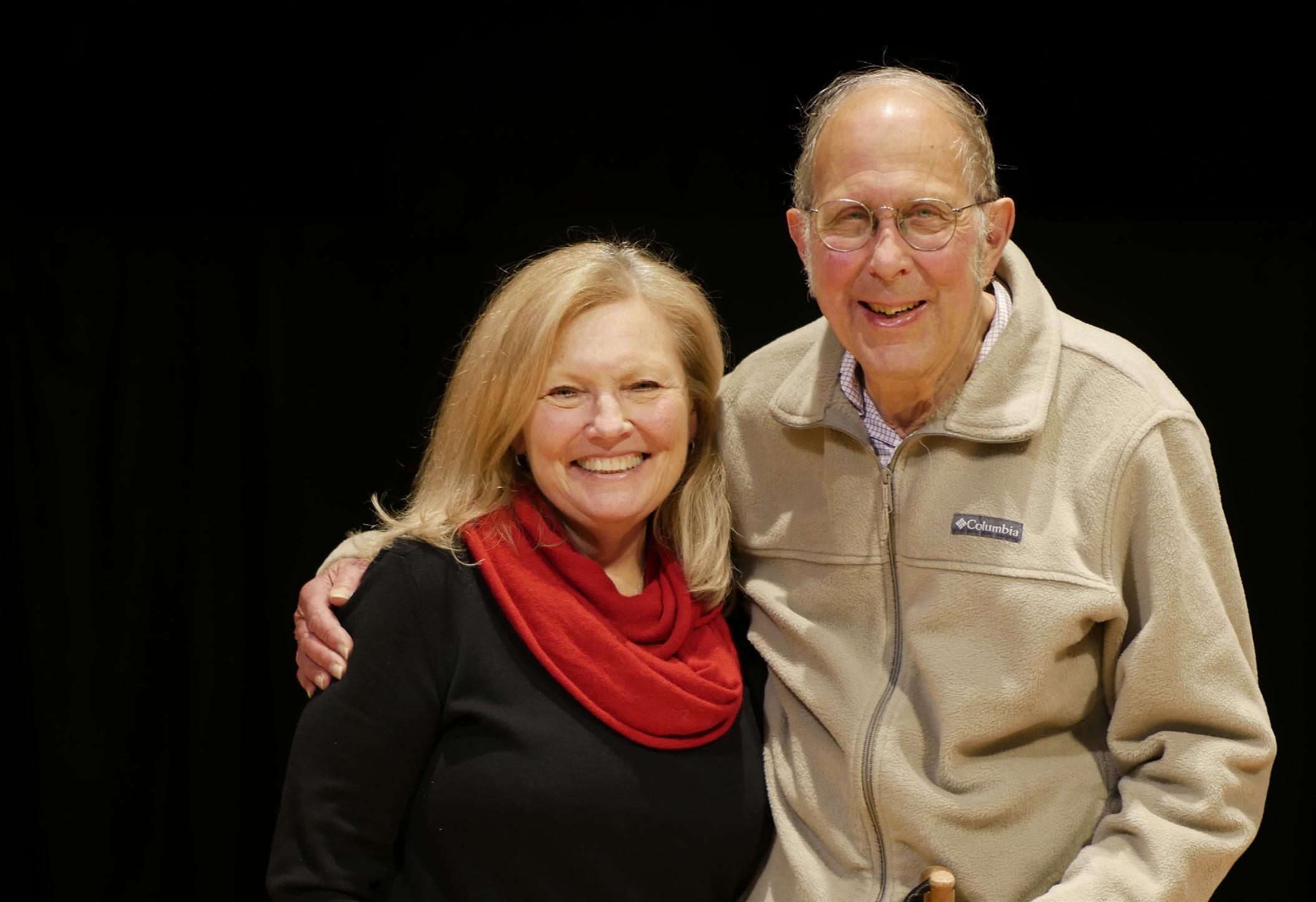
Over the course of more than three decades, the College of Engineering at Northeastern University, propelled by the leadership of Michael B. Silevitch and Claire J. Duggan , with their dedicated colleagues, have built and supported a community of educators, researchers, and students, to strengthen the K-20 STEM (Science, Technology, Engineering, and Mathematics) educational ecosystem. Their success has established Northeastern as a STEM innovator in Boston, in the state of Massachusetts, and nationally.
In 2024, the Center for STEM Education at Northeastern was renamed the Michael B. Silevitch and Claire J. Duggan Center for STEM Education as a tribute to their legacy of contributions and impact. Duggan serves as its executive director and Silevitch, the Robert D. Black College of Engineering Distinguished Professor of Electrical and Computer Engineering, remains a staunch advocate for STEM education.
When Silevitch and Duggan met in the late 1980s, he was a professor of electrical and computer engineering and had launched the Center for Electromagnetics Research, the first National Science Foundation Industry-University Cooperative Research Center at Northeastern. Duggan was an administrator at the Barnett Institute, an interdisciplinary research center housed within the College of Science, and working towards an advanced degree in public administration. “We began our journey very differently at the university,” Duggan says.
Their first collaboration involved Duggan assisting Silevitch with grant proposals in the 1980s. Their focus was on improving the quality of science and math curricula. At that time, the STEM acronym had yet to be created; the NSF would coin the term in 2001. But in the 1980s and 1990s, there was increasing concern about the quality of science and math curricula, and many efforts to implement change. This was spurred in part by the April 1983 publication of “A Nation at Risk,” a scathing report released by the U.S. Department of Education that warned “Our once unchallenged preeminence in commerce, industry, science, and technological innovation is being overtaken by competitors throughout the world.” It set in motion education reforms on both the state and federal levels.
K-8 students participated in field trips from over 100 schools
middle school summer program participants
8500+ 500+ 180+ 650+ 86 $28M
Young Scholars Program participants, 80% alumni pursuing or graduated with STEM degree
full scholarships for underrepresented populations
students (45% from community colleges) from 28 schools participated in REU programs
Contributed to in external research awards in past decade
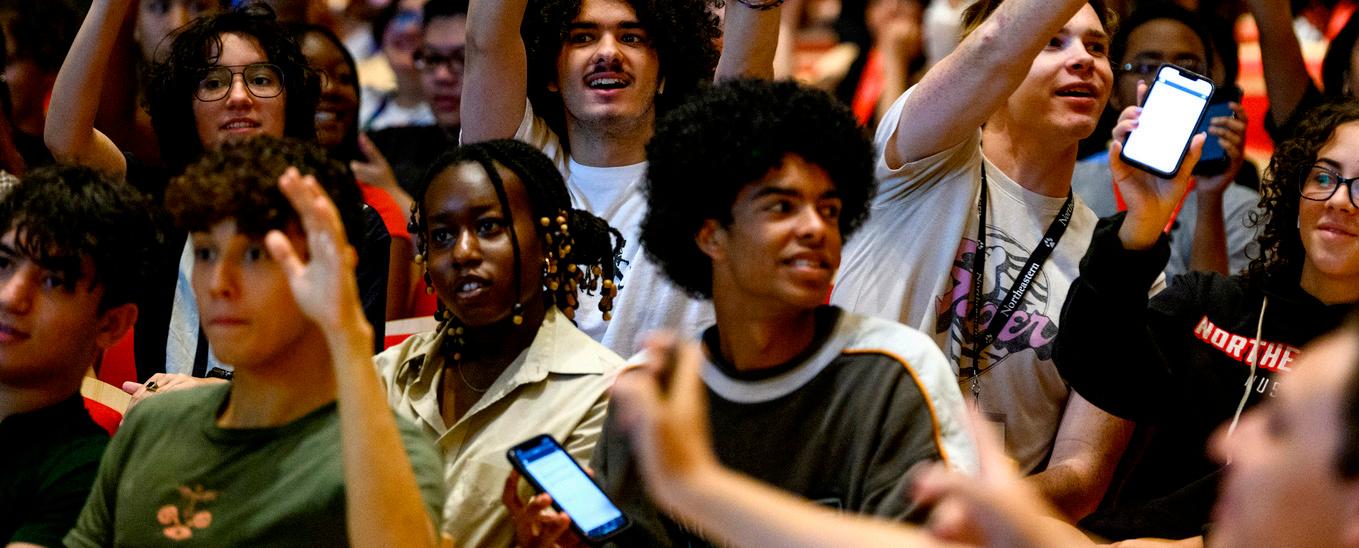
Countless number of students and educators touched
For Silevitch, there was also a personal motivation to improve science and math curricula. He recalls looking at his youngest son’s homework in the late 1980s and realizing, “there was no science in the science curriculum.”
“That motivated me to create curriculum that would be accessible to teachers who did not have the training necessarily to implement a science curriculum and give them ideas for hands-on activities that would excite the students,” Silevitch adds.
In the late 1980s, Silevitch won a $5 million grant from the NSF to create curricula and oversee its implementation across hundreds of schools in New England. He also served as co-principal investigator on a $20 million, 10-year grant led by the Department of Education in Massachusetts that focused on further improving science and math curricula. He received NSF funding to create the Center for the Enhancement of Science and Mathematics Education (CESAME) that initially served as the implementation arm of the curricula work that he had completed. That center would become the Center for STEM Education in 2007.
While Duggan initially focused on assisting Silevitch with grant proposals, she soon expanded her scope to include STEM outreach, and she began reaching out to faculty and staff from across the university, along with industry partners, elementary and high school educators, and volunteers to enrich programs and bring interdisciplinary support to outreach efforts—an approach that remains central to the programming done today.
Silevitch and Duggan’s efforts have created dozens of STEM outreach programs and brought thousands of young students to Northeastern’s campus to learn about STEM; supported elementary school teachers and provided resources to improve STEM curriculum; and established strong partnerships within the Boston Public Schools, other school systems, universities, and partners to provide programing and guidance for STEM initiatives.
An interdisciplinary approach is needed for STEM outreach efforts as is building long-lasting connections with students and community members through a continuous cycle of programming from kindergarten to graduate school.
Several other best practices emerged as they moved forward. They recognized that students need exposure to STEM regularly to maintain interest. Duggan’s outreach programs embraced this basic principle, with efforts designed to build long-lasting connections with students and other community members through a continuous cycle of programming from kindergarten through undergraduate and graduate studies.
“It is never a one and done for a child who comes to Northeastern,” says Jennifer Love, assistant director for the Michael B. Silevitch and Claire J. Duggan Center for STEM Education. “It has to be continuous engagement.”
Awareness and hands-on projects for grades K-8. For young children, Silevitch and Duggan recognized that hands-on learning was essential to capture and sustain their interest. As such, Northeastern hosts K-8 students on campus frequently throughout the year with fun age-appropriate engineering activities and programming, and participates with partners in fairs and expos. “Students can turn away from science or math pretty early,” Duggan says. “We seek to have students develop their STEM identities when they are young.”
Research and faculty mentors for high school. The high school years are crucial for inspiring an interest in STEM. Without the right supports, promising students could turn away from STEM. To combat this, Duggan, in collaboration with College of Engineering faculty, developed the Young Scholars Program, which was first launched 34 years ago, for rising high school seniors. It is a free program providing six weeks of experiential research, mentorship, and time on campus—80 percent of alumni have gone on to earn STEM degrees. Another program, Building Bridges, exposes students to engineering activities and research with a one-day campus experience.
Transitional programming for college. When students are in college, they also need support. Northeastern’s Summer Bridge Scholars program began in the College of Engineering in 2002 and is now universitywide. First-year accepted students from underrepresented and socioeconomic disadvantaged backgrounds attend a weeklong program before classes start to prepare them for college and help them build a support network of peers and mentors. “The idea was to provide intense summer exposure to STEM to give them the confidence that they could make it,” Silevitch says. Transitional programs support primarily underrepresented students transferring into Northeastern. The Student Pathways Opening World Energy Resources (S-POWER) program was originally funded by a $5 million NSF award and is now in the process of becoming institutionalized at Northeastern. As part of the program, students from community colleges or Historically Black Colleges and Universities (HBCU) transfer to Northeastern to earn engineering degrees. Northeastern is also an NSF site for the Research Experiences for Undergraduates Pathways program, which gives students from community colleges experience with research to help them transition to a fouryear STEM program.
College retention programming. While at Northeastern, students are supported by the college’s NU Program In Multicultural Engineering (NUPRIME), led by Richard Harris, associate dean for diversity, equity, and inclusion, and director of NUPRIME, and the Women in Engineering Program, led by Sarah Ostadabbas, associate professor of electrical and computer engineering. These programs offer informal and formal mentoring, networking opportunities, organizations, and a variety of affinity student clubs. “The College of Engineering recognizes that if you really want to encourage diversity, underrepresented students need to feel confident that they’re part of a larger inclusive community,” says Harris.
Other programs such as the Undergraduate Program for Leaders in Future Transformation (UPLIFT) and Research Experiences for Undergraduates (REU) give students a grounding in research, connections with peers with a shared interest, and one-on-one mentoring by faculty. Harris explains, “By engaging with students early in college, tapping into their interests, and supporting them along the way, our program is nurturing students to continue their engineering journey and helping them reach their full potential.”
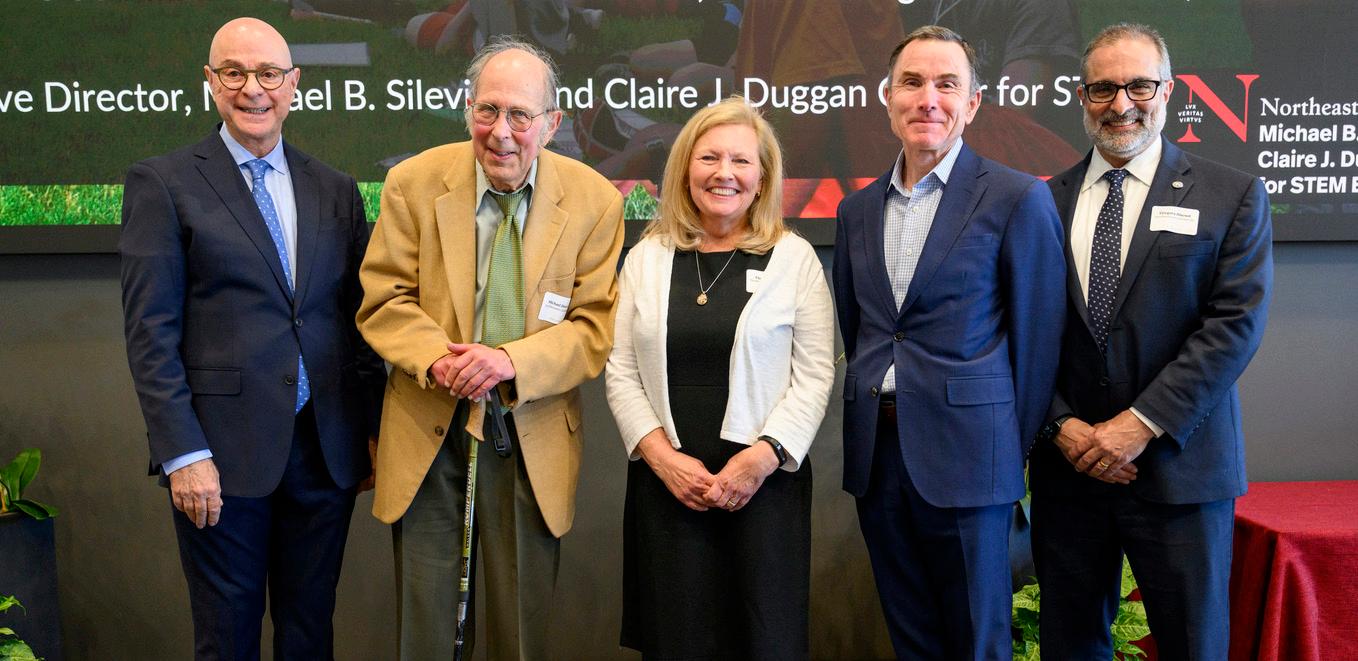
Part of the success of STEM outreach at Northeastern is Silevitch and Duggan’s belief in developing leaders and mentors by giving students opportunities to get involved in advancing STEM programs. Undergraduate and graduate student volunteers—about 150 annually—and student clubs participate in running several STEM events and field trips. Faculty mentors are also critical for the high school and college years. “Building the STEM pipeline is a community effort. Seeing students that were in our programs come back to volunteer to help the next generation is the most rewarding,” says Duggan.
In addition to STEM outreach for students, Duggan works with faculty pursuing federal research grants by helping them craft and implement a STEM education or outreach element, which is required as a Broader Impact statement in an NSF grant proposal. In the past decade, her efforts have contributed to faculty being awarded nearly $28 million in funding.
Even with all their achievements, Silevitch and Duggan would be the first to say there is still much more to do. Currently, the Black, Indigenous, and other people of color (BIPOC) community accounts for just 18 percent of engineering graduates and 34 percent of the U.S. population, while women account for 23 percent of the graduates and 51 percent of the U.S. population.
In partnership with the American Society for Engineering Education and regional engineering colleges, Silevitch, Duggan, and Harris are taking their expertise to make an impact nationally as co-principal investigators of the Engineering PLUS (Partnerships Launching Underrepresented Students) Alliance. Gregory Abowd, dean of the College of Engineering, is principal investigator. With a five-year, $10 million award funded by the NSF INCLUDES Alliance, Engineering PLUS is creating networked communities nationwide to build an inclusive infrastructure that will drive the transformative, systemic, and sustainable change needed to increase the annual number of BIPOC and women earning undergraduate/graduate degrees in engineering to 100,000/30,000 by 2026.
“It is essential that we work systematically and collaboratively on these efforts,” Duggan says.
Using best practices and working together to share expertise, capabilities, successes, and resources will help increase diversity of engineering at scale. N
by

When cardboard rockets are flying through the air and eggs are dropping from twostory platforms, Claire Duggan, executive director of the Michael B. Silevitch and Claire J. Duggan Center for STEM Education, knows another STEM program has been a success.
Students learn through their own firsthand discoveries, Duggan notes, which is why the center’s grade K-8 programs give children an opportunity to discover, build, design, and then redesign. Duggan and her team, Jennifer Love, associate teaching professor and associate director; Nicolas Fuchs, program manager; and Mary Howley, administrative assistant, manage the center’s operations and dozens of events annually. And while these programs are fun and engaging, there’s another issue at hand: The earlier students are exposed to STEM activities, the more likely they are to pursue a career in STEM.
“We want them to see what future role they could play as scientists or engineers,” Duggan says. “They are the STEM leaders of tomorrow.”
Since 2012, nearly 9,000 elementary and middle school children throughout Massachusetts have attended field trips at Northeastern’s Boston campus. In middle school, students can attend programs that build on these early experiences with more challenging activities and, in some cases, overnight stays to give them a glimpse into campus life.
“Students can turn away from science or math pretty early,” Duggan says. “We seek to have students develop their STEM identities when they are young.”
An annual event, the Engineering for Everyone Expo welcomes K-8 students with parents or caregivers to campus. Numerous College of Engineering student clubs create and guide a wide range of fun experiments and activities to inspire the next generation.
“We have Northeastern students who are more than willing to share their experiences,” Duggan adds. “It’s important for a young student in elementary or middle school to see a student who is a few years ahead of them in addition to seeing an established professional or a teacher.”
“We want them to see what future role they could play as scientists or engineers. They are the STEM leaders of tomorrow.”Claire Duggan Executive Director of the Michael B. Silevitch and Claire J. Duggan Center for STEM Education

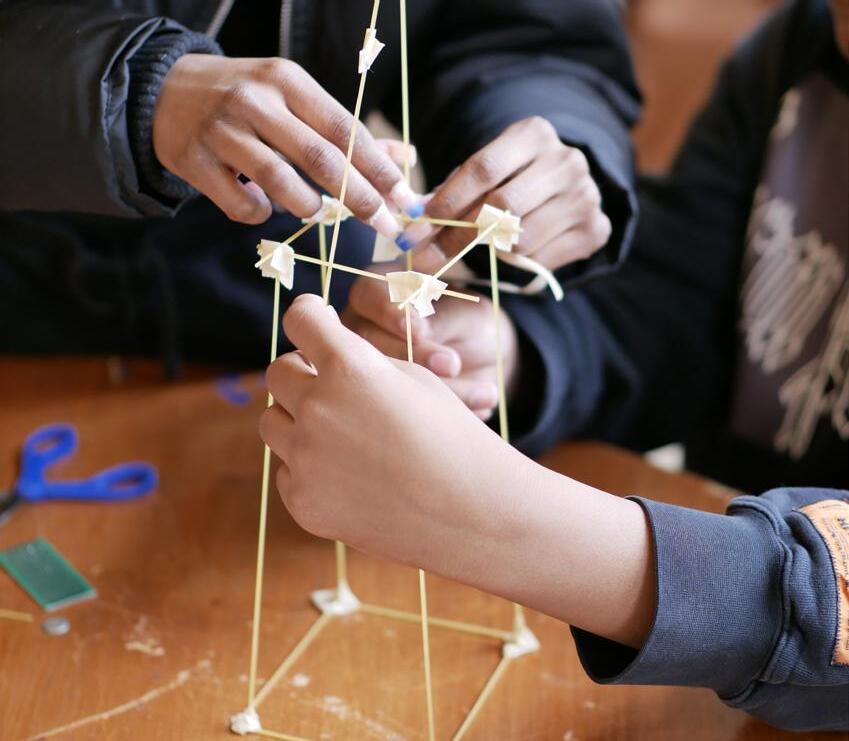

During an academic year, at least 1,000 students in grades 4-8 participate in field trips to Northeastern’s campus. At each event, a group of about 40-50 children from a local school spends a day on campus with their teachers to delve into a particular engineering topic that supports their current STEM classroom curriculum. Oil spills, solar energy, catapults, robotics, and more introduce children to basic engineering principles with hands-on activities and encourage them to build solutions.
Growing a broader community of STEM educators by supporting local schools, organizations, and universities is another focus of Duggan. “For the STEM work to continue, we need to inform each other, break down silos, and be good allies to each other,” she says.
The center has worked closely with local schools for decades with the goal of delivering a STEM education to all students. In the early 2000s, Northeastern led a Research Experience for Teachers (RET) program funded by the National Science Foundation. It brought middle school teachers, along with high school and community college educators, onto campus for a six-week, research-intensive program that enabled attendees to create lesson plans for their classrooms based on their experiences.
This and other programs led to long and successful relationships with the Boston Public Schools and other school districts that continue today, such as co-sponsoring the Boston Public Schools Science Fair. The center also participates in key state-wide events, such as the Massachusetts Teacher STEM Fair, and networking opportunities with state-wide organizations to support educators with resources for their classrooms. The kickoff of Massachusetts STEM Week, a program led by the governor’s administration, was held at Northeastern in 2022.
“With programs and support provided from a wide range of sources, young students can get the opportunities they deserve to build their own STEM pathway,” says Duggan. N
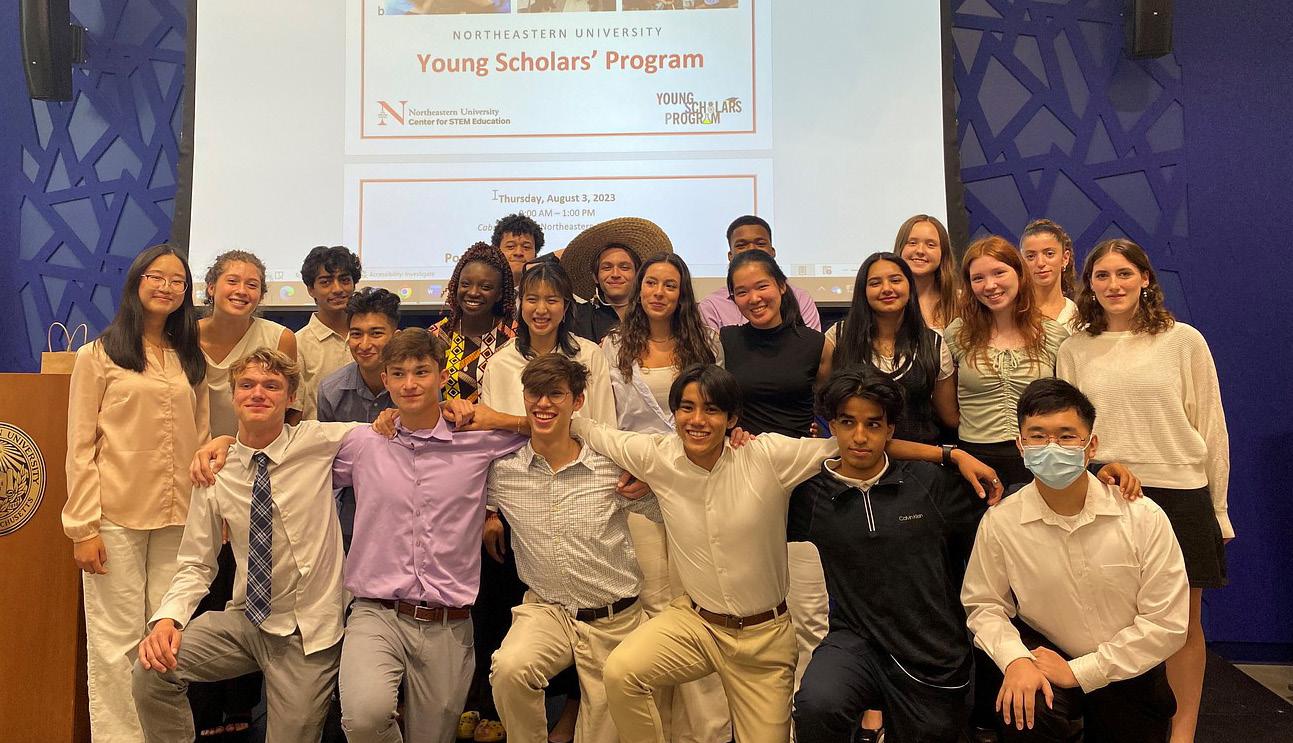
As students approach the end of high school, they are at a critical juncture as they decide on next steps. Without guidance, students can forgo plans to pursue a STEM education because they may believe the coursework will be too daunting or that they will not be able to afford a program. Worse, some will not even realize STEM education opportunities are available to them.
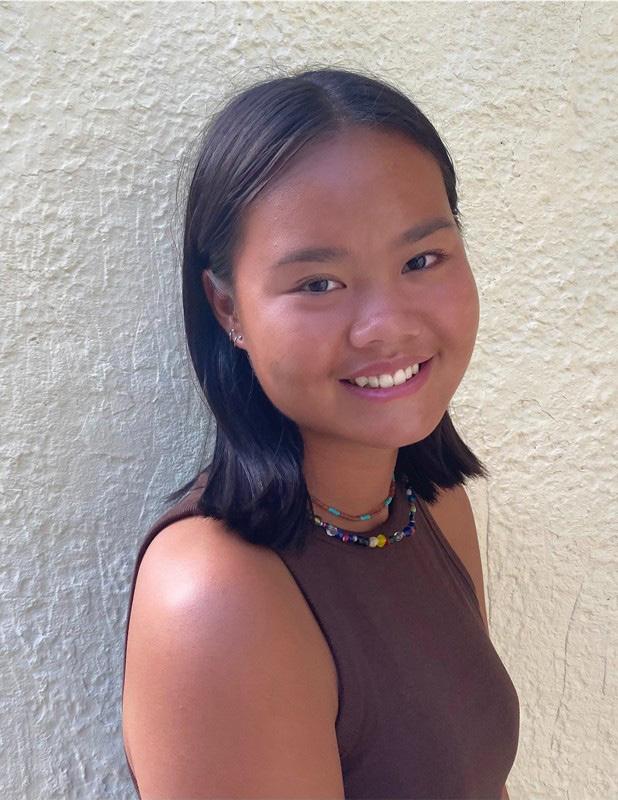
Claire Stipp, E’27, chemical engineering, got her start as a Young Scholar and today gives back supporting STEM outreach.
In 1990, Claire Duggan, executive director of the Michael B. Silevitch and Claire J. Duggan Center for STEM Education, launched the Young Scholars Program for rising high school seniors interested in STEM. Today, 34 years later, the six-week free summer research experience program is still going strong. More than 650 students have participated and 80 percent of alumni have completed a bachelor’s degree in a STEM field.
Research exposure and mentoring are core parts of the program to inspire STEM careers, and College of Engineering faculty across engineering disciplines participate. Northeastern student volunteers are also critical to the program’s success.
Claire Stipp, chemical engineering, E’27, participated in the Young Scholars Program in 2021. She worked in the lab of Chemical Engineering Professor and Chair Rebecca Willits, focusing on the directed migration of Schwann cells for peripheral nerve regeneration. When she came to Northeastern in fall 2022, she continued this research as part of the UPLIFT research program (see page 16). Stipp now helps the Center with its STEM outreach efforts.
Faculty-led seminars and field trips, such as to the Marine Science Center in Nahant or Boston’s Harbor Island, are also part of the program, while fun engineering challenges, such as the design of an air-powered homemade rocket launch, build skills and foster friendships. Additionally, Young Scholars learn about the various engineering disciplines and receive guidance on the college application process and professional development. A final presentation, including a poster session, helps develop important skills for college.
“It made science real for me…It went from the abstract to something I wanted to do as a career and so it really changed my life.”
Matthew Eckelman Associate Professor, Civil and Environmental Engineering

Matthew Eckelman, associate professor of civil and environmental engineering, was a Young Scholar nearly 30 years ago. He recounts that while he spent time in biology and chemistry labs in high school, he didn’t understand what true research was until he participated in the program.
“I’d never really had any kind of experience about actually testing a hypothesis, setting up an experiment, going through different permutations, making mistakes, doing it all over again, and fixing the mistakes,” Eckelman says. “It made science real for me. It went from the abstract to something I wanted to do as a career and so it really changed my life.”
Some 20 years after being a Young Scholar, Eckelman began supporting the program as a faculty mentor. One of those students was alumna MaryBeth Rockett, E’21 and MS’21, bioengineering. She says her experience in Eckelman’s lab “gave me an excellent opportunity to perform research in a STEM lab and to ultimately understand what a career in STEM could look like.”
Today, Rockett works in the Scale-up Lab Pilot Plant at Amgen, a biopharmaceutical company in Cambridge, Massachusetts. She volunteers her time to support Young Scholars and hosts them at her workplace so they can see STEM in action.
“I love hosting the students at Amgen every year,” Rockett says. “We take them through our pilot plant and our synthetics lab and show them what it looks like.”
For Cameron Young, E’22, chemical engineering and biochemistry, the program helped him on his engineering path leading to a Churchill Scholarship, and an M.Phil. in medical sciences at the University of Cambridge. He is now an M.D. candidate at Harvard University.
“I loved the way that engineering allowed me to solve problems and think critically and challenge my thought processes,” Young says. “I saw that it was an environment that I could really thrive in and enjoy.” N
Photo by Matthew Modoono/Northeastern University L to R: Matthew Eckelman, MaryBeth Rockett, and Louis Sokolow
Knowing that you are part of a community—within the larger university community—and having a feeling of belonging, along with the support system and preparation to jumpstart the college journey, can significantly influence outcomes for many firstyear underrepresented students.
More than two decades ago, Richard Harris, associate dean for diversity, equity, and inclusion in the College of Engineering, and director of the NU Program In Multicultural Engineering (NUPRIME), identified a need to better support accepted undergraduate engineering students from underrepresented populations in their transition to university life. This led to him and colleagues developing a Summer Bridge Scholars program in 2002.
With the comprehensive weeklong program, which takes place before the start of the academic year, scholars begin to build a network of peer mentors and faculty mentors. They attend workshops and seminars, a leadership retreat, teambuilding activities, and experience college-level academic classes. Social outings provide intentional opportunities for student bonding.
From San Francisco, California, and 3,000 miles away from home, Noah Babcock, E’26, mechanical engineering and physics, said the program was just what he needed to get adjusted to the Northeastern environment and become comfortable far away from home.
“We had a bunch of really cool events, and a lot of teambuilding experiences, which is helpful for people who are just getting into college,” says Babcock.
The formula has clearly worked. The Summer Bridge Scholars program expanded to the College of Science in 2016, and in 2020, Northeastern implemented it across the university. In 2023, 275 students participated.
Raiana Sumpter, E’27, environmental engineering, credits the Summer Bridge Scholars program with helping her to make friends, get introduced to affinity groups, including the John D. O’Bryant African American Institute, and experience a physics class firsthand.
“I’m very, very thankful for Summer Bridge,” Sumpter says.
One of Sumpter’s favorite activities was a day trip to the Warren Center, where students built a canoe with various materials, including barrels and ropes, and then tested it on the water. Through this and other bonding experiences, she established a friend group that has helped her navigate her first year.
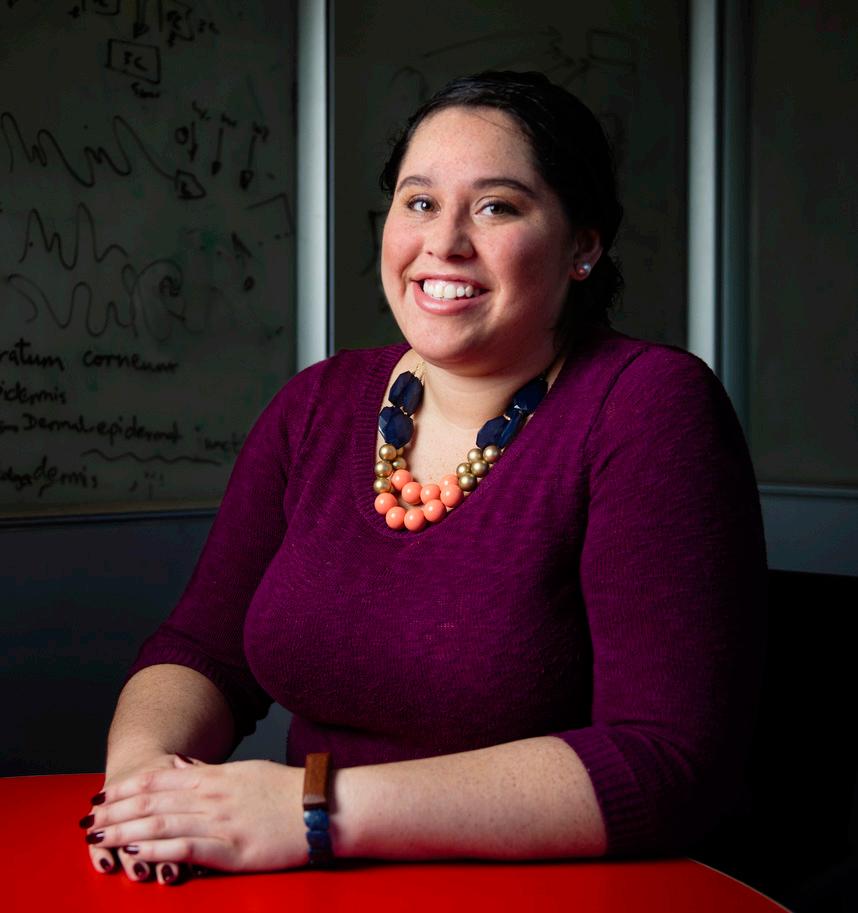
Alumna Sarah Brown is a triple Husky who earned her PhD in electrical engineering in 2016 and is now an assistant professor of computer science at the University of Rhode Island. She attended Summer Bridge 18 years ago and still recalls how the program helped put her on the right path.
“Having the extra support was really essential and it was important in setting the right stage,” Brown says.
In addition to establishing a friend network that lasted through her undergraduate years, she learned about research opportunities from networking with friends and faculty. One opportunity was a research position at the Bernard M. Gordon Center for Subsurface Sensing and Imaging Systems (CenSSIS), led by Michael Silevitch, Robert D. Black College of Engineering Distinguished Professor of Electrical and Computer Engineering.
“I was academically strong,” notes Brown. “But because of the Gordon CenSSIS program, I learned what research was. It gave me a pathway and a leg up.”
For Harris, Summer Bridge is about possibilities for students, particularly those who may not have previously received encouragement or had access to resources to help them with their STEM education. Sumpter just pursued one of those possibilities. Because of her positive experience, she applied to be a student mentor in the program.
“These students have just as much, if not more, capacity to be successful,” says Harris. Over the years, some Summer Bridge scholars have received the prestigious Goldwater, Truman, Fulbright, and Rhodes scholarships. N
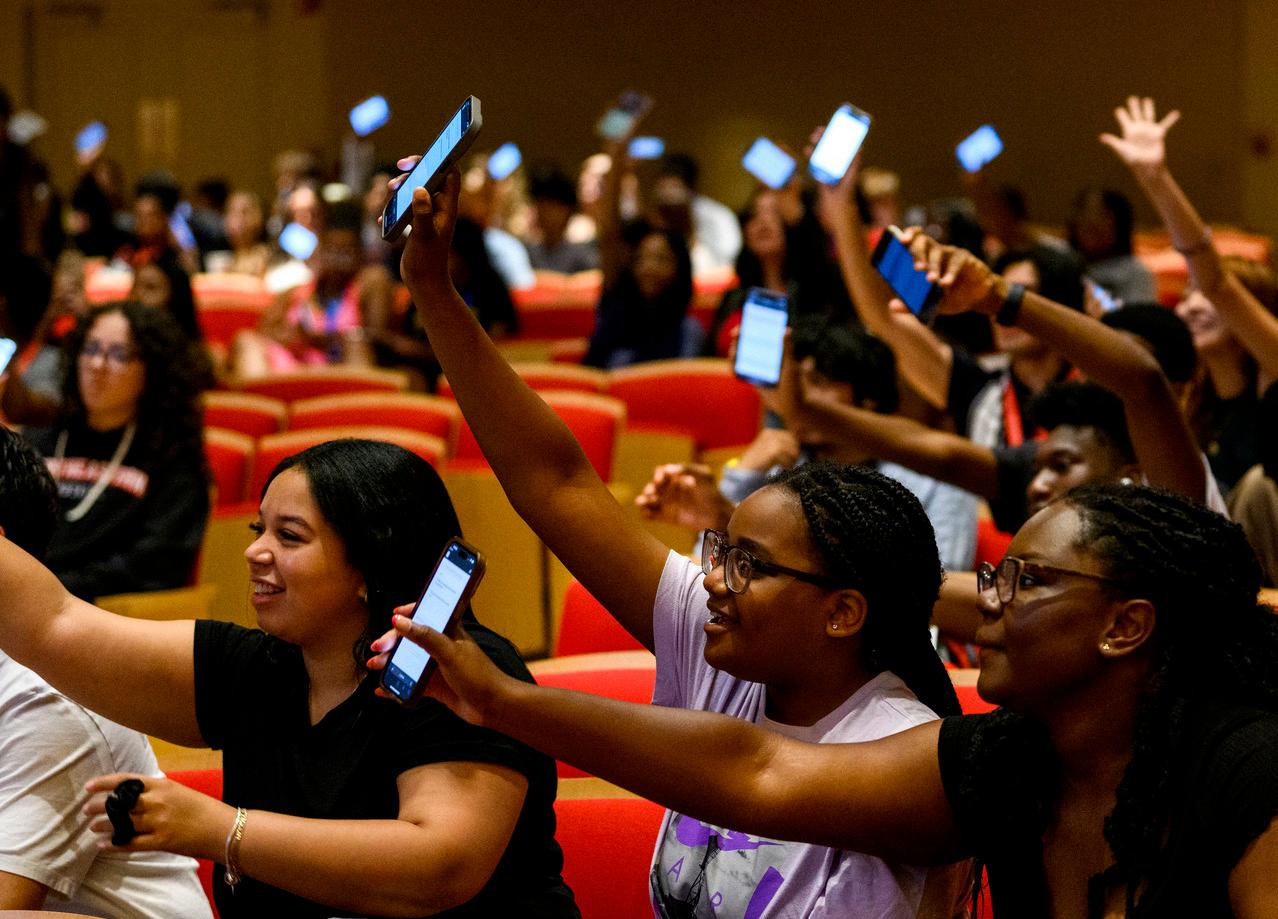
“The best part is being able to engage students in a way that they feel comfortable, that they are their true authentic selves around us. These students have just as much, if not more, capacity to be successful.”Richard Harris
Associate
Dean for Diversity, Equity, and Inclusion, and Director of the NU Program In Multicultural Engineering (NUPRIME), College of Engineeringby Matthew
Longstanding partnerships between the Michael B. Silevitch and Claire J. Duggan Center for STEM Education and community colleges are helping students rethink their education and career plans with STEM pathways.
Since the early 2000s, the center has partnered with MassBay, Bunker Hill, Middlesex, and North Shore community colleges. The partnerships have been anchored by a series of grants funded by the National Science Foundation (NSF) focused on helping community college students prepare for a four-year engineering program and make their transition as smooth as possible.
Chitra Javdekar, former dean of STEM at MassBay, says she worked with Claire Duggan, the center’s executive director, for more than a decade and credits her with helping MassBay align its STEM-related course offerings with a four-year program to better prepare students for more rigorous academics.
“Together we really strengthened the transfer pathway for our students,” Javdekar says.
Duggan says that through the years she has met with leaders like Javdekar to brainstorm program ideas, promote STEM opportunities to students and faculty, identify students who may have an interest in STEM, and provide opportunities for faculty and students to spend time at Northeastern’s campus to get a firsthand look at the College of Engineering.
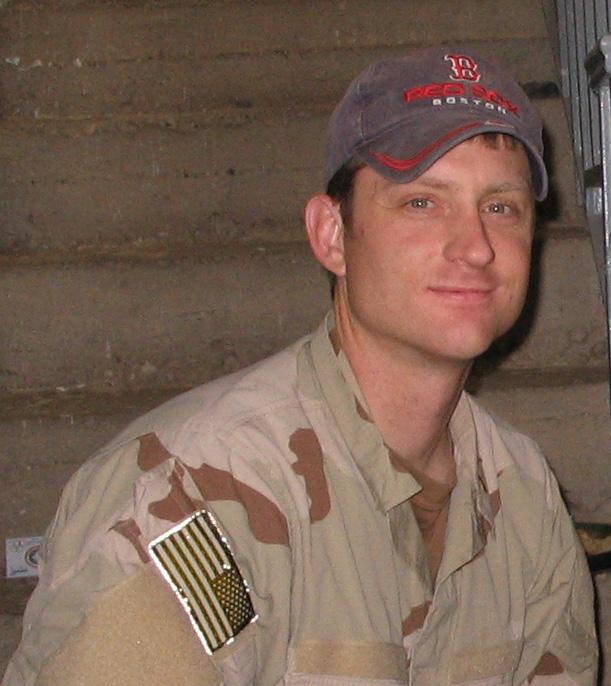
Mike McMahon, E’19, mechanical engineering, was a combat soldier and platoon leader before taking advantage of the REU:Pathway program at Northeastern.
“Community colleges have an essential role,” Duggan says. “They fill an incredible void for those students who are not quite ready for a four-year college.”
Mike McMahon, E’19, mechanical engineering, was one of those students. After retiring from combat as a First Lieutenant, Ranger and Platoon Leader in the U.S. Army, and spending eight years as a project manager for the U.S. Special Operations Command, McMahon set a bold goal to become a professional engineer. He began his education at MassBay and transferred to Northeastern after learning about the College of Engineering. Today, he is a senior supply chain development manager at a green energy company.
NSF-funded Research Experiences for Undergraduates (REU) programs for community college students have been offered by the College of Engineering for decades with lifechanging impact. The goal of the REU is to expose students to research opportunities, faculty, and life at the College of Engineering so they can make an informed decision about continuing their STEM education. As part of the current REU:Pathways program, students participate in a 10-week summer research experience working in faculty labs and attending classes, workshops, seminars, and field trips.
Muskan Kumar, who was pursuing a cybersecurity certificate at MassBay, participated in REU:Pathways in 2023. “It didn’t feel like work because of how much I loved it,” she says of her experience in the Augmented Cognition Laboratory, mentored by Sarah Ostadabbas, associate professor of electrical and computer engineering. “It sparked a passion for research.”
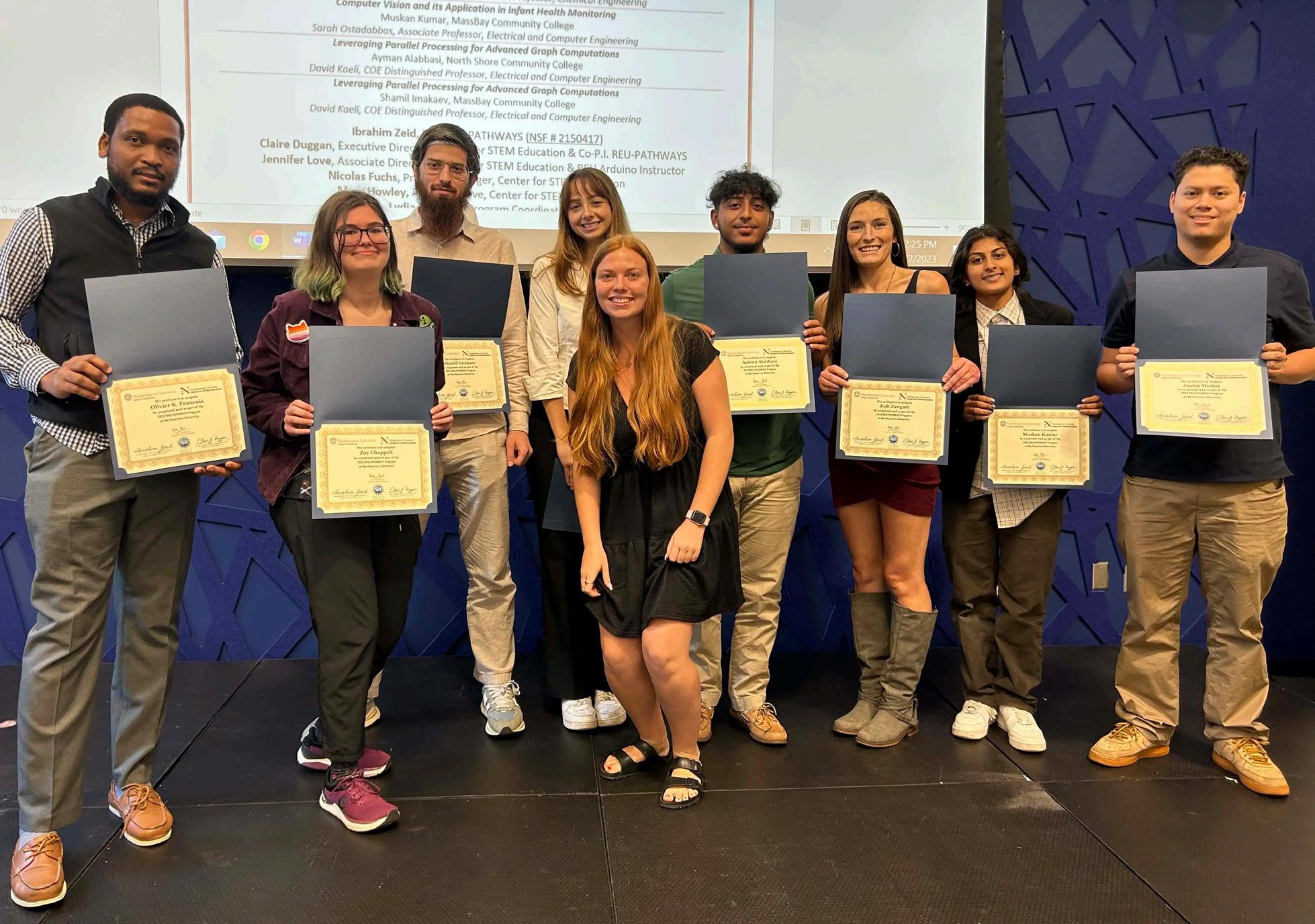
As a community college student, Jessica Faust participated in an REU at Northeastern in 2010 and in 2011, and then transferred to Worcester Polytechnic Institute to pursue a bachelor’s degree. While at WPI, she was also a research assistant in the Department of Mechanical and Industrial Engineering at Northeastern, where faculty mentors recommended her for the mechanical engineering PhD program. Faust received a prestigious NSF Graduate Research Program Fellowship and completed her doctorate in 2020. Along the way, Faust has helped the next generation of STEM students through peer mentoring and participating in the Young Scholars Program. Today Faust is a senior research scientist in industry.
Past examples of NSF-funded REU and community college transitional programs supported by the College of Engineering have included REU: Data Driven Discovery (D3), TRANSFORM to train unemployed liberal arts graduates for STEM careers, and STEP UP, which provided community college faculty with research opportunities at Northeastern. The College of Engineering’s successful S-POWER pathway program for students from community colleges and Historically Black Colleges and Universities, originally funded by the NSF from 2016-2022, is in the process of becoming institutionalized at Northeastern (see page 14). N

“Community colleges have an essential role. They fill an incredible void for those students who are not quite ready for a four-year college.”
Claire Duggan Executive Director, Michael B. Silevitch and Claire J. Duggan Center for STEM Education Photo by Bella Martinez/Northeastern University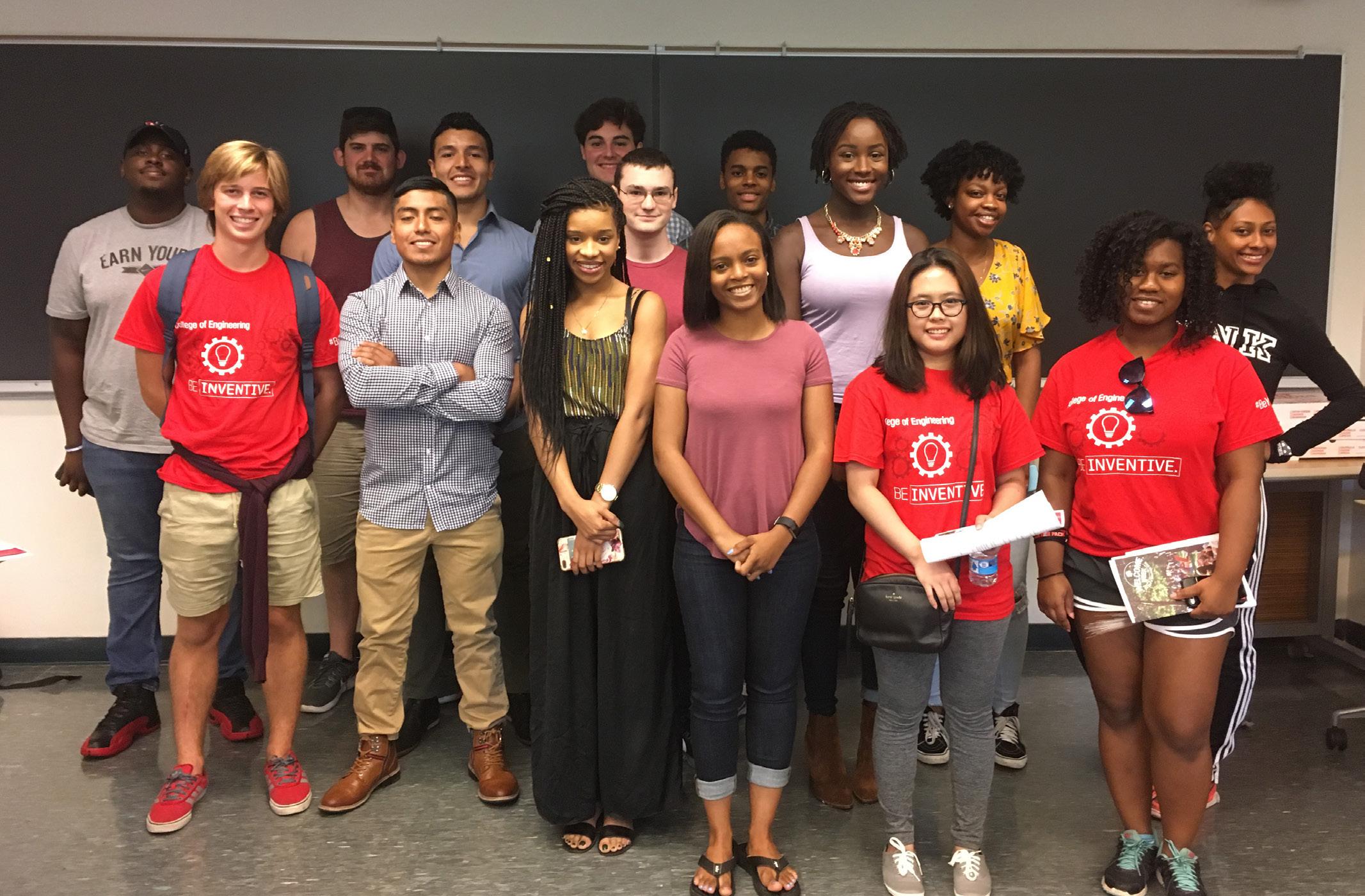
The term “transfer shock” describes what happens when students enter a competitive institution without being given the tools to succeed. For some students, it’s about making the leap from an academically different institution or community college. For others, it’s about navigating university life alone, with few collegeeducated family members or role models to show them the way.
In 2016, a Northeastern University College of Engineering team was awarded a $5 million S-STEM grant from the National Science Foundation. The S-POWER (Student Pathways Opening World Energy Resources) five-year program provided financial aid as well as academic and mentoring opportunities for largely, but not limited to, students entering Northeastern from community colleges and Historically Black Colleges and Universities (HBCUs). The purpose of S-POWER was to address the low rate of underrepresented minority students in competitive STEM programs, while supplying diverse qualified talent to meet the needs of the U.S. energy sector and other STEM-based industries.
Achieving a student retention rate of over 90 percent and outcomes leading to careers at companies such as Apple, Meta, General Motors, Amazon Robotics, and Lockheed Martin, as well as students going on to prestigious graduate schools, S-POWER is a blueprint of best practices to inform other programs. Given its success, the program is now in the process of being institutionalized at Northeastern.
Crucially, S-POWER was carried out with the “sending institutions”—the colleges where students were transferring from—where they were prepared with key courses and guidance before entering Northeastern. Partner institutions included MassBay, Middlesex, and Northern Essex community colleges, as well as HBCUs Clark Atlanta University and Hampton University.
Madeline Weaver had been working as a pastry chef for five years before enrolling at MassBay Community College to pursue an associate degree in technology. She transferred to Northeastern as part of the S-POWER program and earned a BS in electrical and computer engineering in 2022. “It would have been very intimidating to apply to transfer to a four-year university unless there were people actively encouraging me to do that,” Weaver says.
by
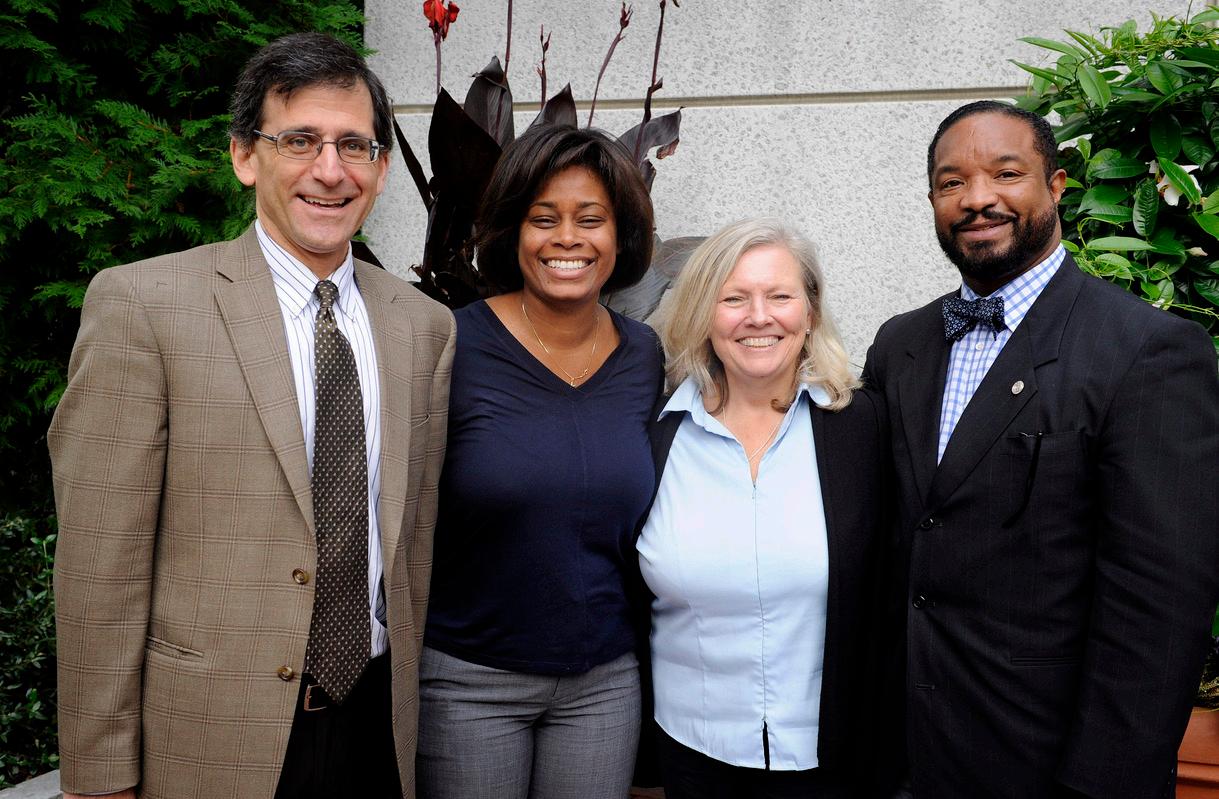
“S-POWER allowed our team to examine and develop multiple pathways to support students, beyond a scholarship, toward successful completion of their degrees.”
Now Weaver is pursuing a master’s in mechanical engineering with a concentration in robotics at Carnegie Mellon University with a plan to continue studies for a PhD. She says, “S-POWER showed me that if you give people the resources to succeed—the resources someone else might have grown up with—they can do just as well.”
“These students’ needs are often drastically different than those pursuing a traditional route to a four-year degree,” says Marilyn Minus, professor of mechanical and industrial engineering. “Many students were older, had long commutes, worked full time—or had multiple jobs—and in some cases, had their own families.”
Juan Mesa, E’21, mechanical engineering, had planned to get an associate degree in mechanical engineering to support his father’s auto repair business. “S-POWER opened my eyes to what my life could be,” he says. “Besides the financial aspect, I had a group of mentors…I did research at Northeastern and that led to a trip to Spain doing research at universities there. It was the stepping stone of where I am now.” Mesa is currently at Carnegie Mellon University with a GEM Fellowship pursuing a PhD “working on hydrogen fuel cells to contribute energy to the world.”
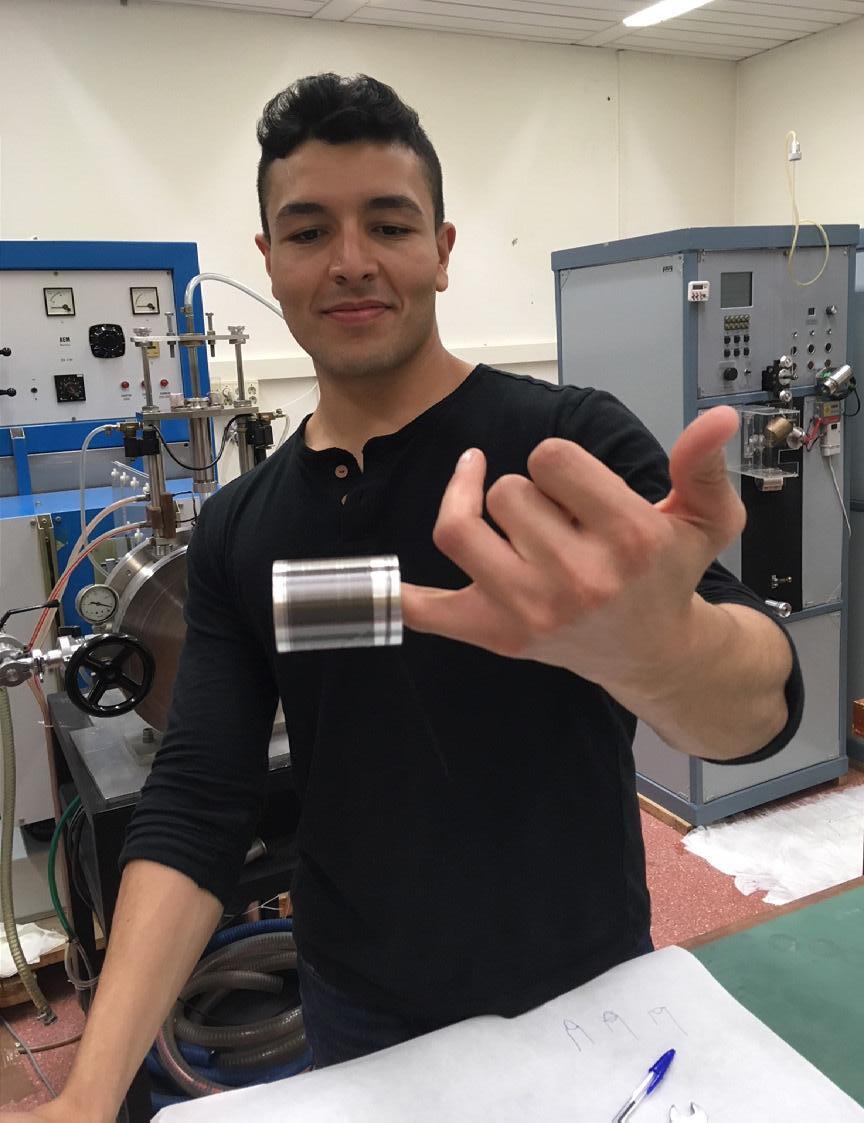
“S-POWER allowed our team to examine and develop multiple pathways to support students, beyond a scholarship, toward successful completion of their degrees,” says Minus.
“For all intents and purposes, S-POWER went beyond what we initially intended, says Richard Harris, associate dean for diversity, equity, and inclusion in the College of Engineering, and director of the NU Program In Multicultural Engineering (NUPRIME). N
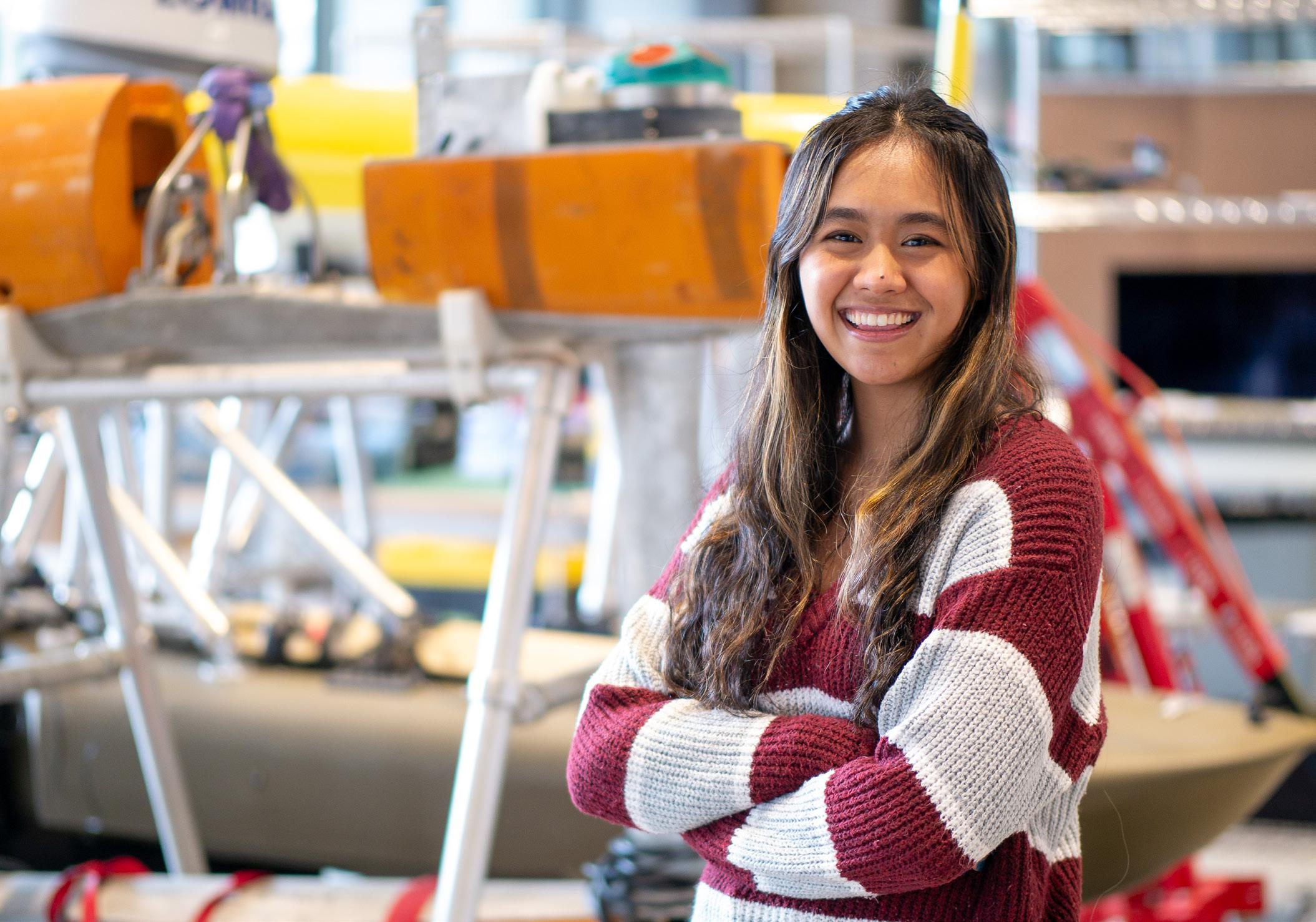
To retain highly talented engineering students, especially those who are underrepresented, women, and socioeconomically disadvantaged, and help them reach their full potential, the College of Engineering developed an innovative program: the Undergraduate Program for Leaders in Future Transformation (UPLIFT).
Rachelle Reisberg, former assistant dean for undergraduate recruitment and retention for the College of Engineering; Claire Duggan, executive director for the Michael B. Silevitch and Claire J. Duggan Center for STEM Education; and Richard Harris, associate dean for diversity, equity, and inclusion for the College of Engineering, and director of the NU Program In Multicultural Engineering (NUPRIME), worked together to develop and implement the UPLIFT program.
In their first semester of study at Northeastern, UPLIFT scholars attend research seminars and apply for a second semester placement with a faculty mentor that matches their interests. In their second semester, scholars work in their mentor’s lab and take a directed study (general elective). They complete a Research Experiences for Undergraduates in the summer, and additional experiences thereafter. Scholars also receive programming and community building opportunities through the Michael B. Silevitch and Claire J. Duggan Center for STEM Education. More than 150 students have participated in UPLIFT since its start in 2020.
“UPLIFT provides a clear set of excellent research-oriented opportunities for our undergraduates in their first year, starting with student contact in the summer before their arrival,” says Harris.
Through these experiences, scholars become competitively positioned for graduate work, national scholarships, and other accolades they may wish to pursue. In 2024, two UPLIFT scholars were nominated for, and one received, the Barry Goldwater Scholarship—a highly competitive, merit-based award for outstanding students in mathematics, the natural sciences, and engineering who are interested in pursuing careers in research.
Serena Lin, E’26, (pictured left) who is majoring in electrical and computer engineering, with a minor in robotics, applied to Northeastern as a mechanical engineering and physics major. As an UPLIFT scholar she was paired with faculty mentor Rouzbeh Amini, associate professor of mechanical engineering and bioengineering. “It seemed in the realm of what I was interested in. It was my first introduction to college-level research and I was intrigued,” she says.
Through research experiences beginning in their first semester of their first year, UPLIFT scholars become competitively positioned for graduate work, national scholarships, and other accolades they may wish to pursue.
But during Lin’s first semester in the introductory Cornerstone of Engineering I class, she discovered a new interest. “My favorite part was coding and wiring. From that, I knew that mechanical engineering and physics wouldn’t fully cover my interests. I started considering electrical engineering, computer engineering, and computer science,” Lin reflects.
For her directed study during her second semester, the UPLIFT program connected Lin with Professor Taskin Padir, director of the Institute for Experiential Robotics. “I started on a project building an autonomous fluid projectile robot to test the efficacy of masks, and the project evolved to a device, which at the most basic level, can precisely locate and water a plant without human input,” Lin says.
Lin learned that robotics combined all her interests and motivated her future studies, changing her major to electrical and computer engineering with a minor in robotics. “For me, it combines mechanical design, electrical design, and coding,” she says.
Next, the UPLIFT program recommended her as a good candidate for the Research Experiences for Undergraduates program. REUs are prestigious paid summer research programs over ten weeks funded by the National Science Foundation. Lin spent the summer at the University of Maryland Baltimore County’s Mobile, Pervasive and Sensor Computing Lab working on smart computing and sensing research related to ship detection, machine learning, and object classification.
Lin continues to thrive in the College of Engineering. She is a teaching assistant for the Cornerstone Engineering class, conducts research at the Institute for Experiential Robotics, and is active in the Northeastern Chapter of the Society of Women Engineers, among others.
“UPLIFT introduced me to my best mentors,” says Lin. “It’s the people you meet along the way that help shape where you are going to go.” N
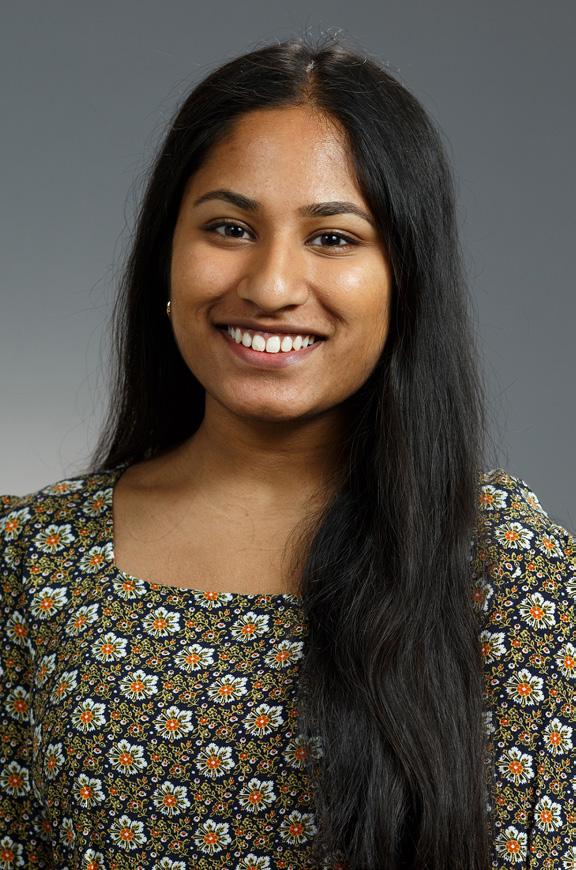
Kaitlyn Ramesh, E’25, bioengineering, began research during her first year in the College of Engineering as an UPLIFT scholar, working in the area of computational biology advised by faculty mentor Mingyang Lu, assistant professor of bioengineering. She then completed a summer Research Experiences for Undergraduates at Harvard University, where she joined the Prigozhin Lab to build a novel microfluidic device that captures ultrafast intracellular processes and provides insight into drug response. Back at Northeastern, under Lu, Ramesh developed a bioinformatics algorithm that analyzes single-cell gene expression data to infer the kinetics of gene expression changes that drive macroscale biological processes, such as wound healing. Her work on the algorithm was funded by a PEAK Ascent Award and the AJC Merit Research Scholarship from Northeastern’s Office of Undergraduate Research and Fellowships. In 2024, Ramesh received the Barry Goldwater Scholarship, one of the nation’s most prestigious, merit-based awards for undergraduate students who plan to pursue research careers in natural sciences, engineering, and mathematics. She aspires to pursue a PhD in computational biology.

Northeastern’s College of Engineering takes great pride in fostering diversity, equity, and inclusion (DEI), and making historically underrepresented students feel at home in and outside of its classrooms and labs.
“First-generation engineering students and their parents, especially those from underrepresented groups, including African American, Latino, Native American, and women, are more likely to be unaware of career options in STEM-related fields like engineering,” says Richard Harris, associate dean for DEI, and director of the NU Program In Multicultural Engineering (NUPRIME), for the College of Engineering. “Those students who have chosen to pursue degrees in STEM subjects have traditionally found themselves a very small minority and have often been challenged to find other students who they identify with and share their lived experiences,” he adds.
Over 40 years ago, the college recognized this issue and created NUPRIME, of which Harris leads, originally founded by the late David C. Blackman and Paula Leventman. NUPRIME then and now helps minority students acclimate to the college and take advantage of the many resources available to support them.
“The College of Engineering was way ahead of the curve by recognizing that if you really want to encourage diversity, you need to provide formal and informal mentoring, networking opportunities, organizations, and clubs that make underrepresented students feel they are part of a larger community,” explains Harris.
Similar to NUPRIME, the college has a longstanding Women in Engineering (WIE) program, led by Sarah Ostadabbas, associate professor of electrical and computer engineering. It focuses on recruiting, retaining, and mentoring students, and creating supportive networks, such as through organizations like the Northeastern Chapter of the Society of Women in Engineers (SWE).
Serena Lin, E’26, electrical and computer engineering, says, “What’s made the biggest difference is being able to talk to someone, like Sarah, and she can tell me her experiences as an undergraduate…Mentors are the most important thing.”
by
While there is more to do, the formula is working. New first-year undergraduate engineering women rose from 34 percent in fall 2017 to 46 percent in fall 2023, while new first-year undergraduate underrepresented students rose from 12 percent in fall 2017 to 20 percent in fall 2023.
James Tukpah, PhD’25, computer engineering, who also earned his BS and MS from the College of Engineering, says, “I feel like Northeastern works hard to educate you about the resources and opportunities available to you—and encourages you to use those resources to succeed.”
Tukpah, who was president of Northeastern’s Black Engineering Student Society as an undergraduate, which is advised by Harris, adds “I believe I am part of a family here and that people care about me.”
With a commitment to DEI, the college continues to build upon its success to make a difference. In 2017, the college signed the ASEE Engineering Dean’s Council Diversity Pledge and established DEI committees for the college and for each engineering department made up of faculty, staff, and student representatives. In 2018, it expanded its partnership with the New England Louis Stokes Alliances for Minority Participation (LSAMP) program with a $1 million National Science Foundation award to host the Bridge to the Doctorate program, and a second $1 million NSF Bridge to Doctorate program in 2022.
In 2020, the college became an official partner of the National Action Council for Minorities in Engineering (NACME), and the only university partner in the Commonwealth of Massachusetts.
Commenting on the scholarship she received from NACME, Lineyah Mitchel, E’21 and MS’21, chemical engineering, says, “Nobody knows every option in their field so you can learn so much just from the networking opportunities.”
In 2022, Harris was appointed associate dean of DEI for the college, and a new Neurodiversity Support Program was created to help neurodivergent students succeed in college and prepare for the workforce after graduation. Harris identified Erik Brenner in 2023 as the director of diversity initiatives and engagement for neurodiversity in the college.
“We strive to create a welcoming and supportive community for all talented students from a variety of backgrounds to succeed,” says Harris. N
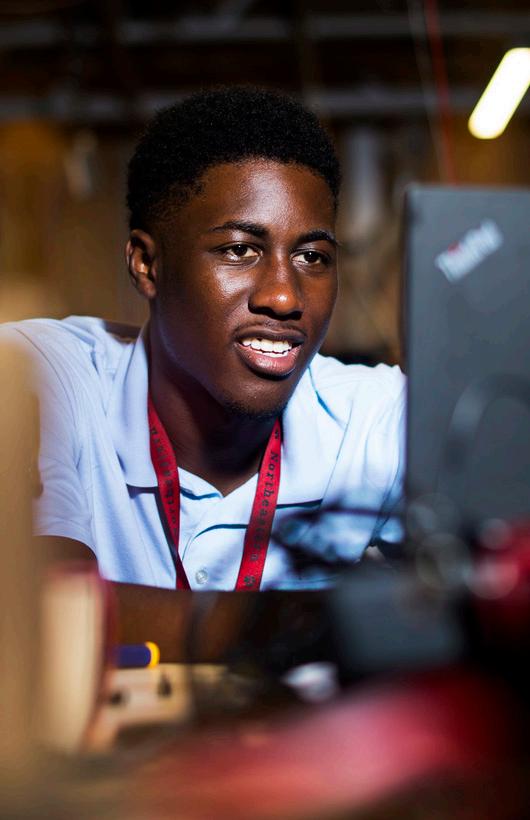
“If you really want to encourage diversity, you need to provide formal and informal mentoring, networking opportunities, organizations, and clubs that make underrepresented students feel they are part of a larger community.”
Richard HarrisAssociate Dean for Diversity, Equity, and Inclusion, and Director, NU Program In Multicultural Engineering (NUPRIME), College of Engineering
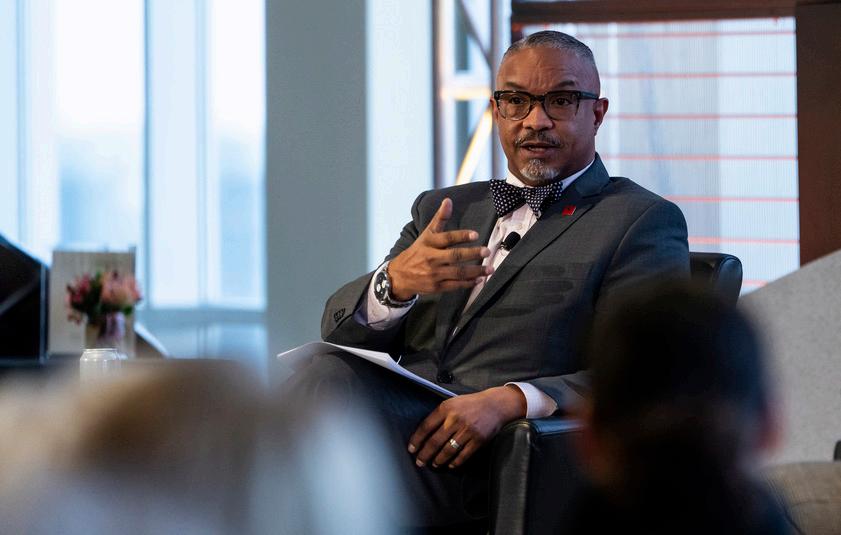
by
Photo Alyssa Stone/Northeastern UniversityBeyond advancing discovery and innovation, research funded by the National Science Foundation must have a broader impact to benefit society. While there are many ways to achieve this, STEM education, outreach, and inclusion are compelling and important areas.
The Michael B. Silevitch and Claire J. Duggan Center for STEM Education assists dozens of faculty each year with federal grant proposals that require a plan for benefiting society through STEM education or outreach.
These efforts, spearheaded by Executive Director Claire Duggan, have helped the College of Engineering receive millions of dollars in research awards annually—$28 million in the past decade—contributing to Northeastern’s standing as an R1 research institution, and ultimately helping to grow the STEM pipeline.
Duggan meets with faculty multiple times during the proposal process to help develop and refine the required NSF Broader Impact statement. “I ask them where they want to be in the STEM ecosystem,” Duggan says. “We walk through it until they get to a point that resonates with them. Otherwise, they’d just be checking off a box on the proposal, and you don’t get a grant that way.”
Through discussions, Duggan may help craft a plan to meet the Broader Impact goal or identify one of the many STEM outreach and education initiatives in the College of Engineering for the faculty member to participate. As an example, many faculty host high school students in their lab as part of the Young Scholars Program (see page 8).
With the College of Engineering’s strength in STEM education and outreach, new faculty and faculty who are not yet in the grant proposal process benefit by having the opportunity to support a variety of programs. “It helps the next generation and is a way to boost their Broader Impact profile should they eventually apply for a grant,” Duggan explains.
Duggan’s team also assists faculty with cost and budgeting, guidance on tactical planning and implementation, and proposal writing for complex grants.
When Eno Ebong, associate professor of chemical engineering and bioengineering, was developing a proposal for an NSF CAREER Award, which she received in 2019, she included mentoring and coaching in her lab as one Broader Impact initiative and added a second to focus on elementary school outreach. Duggan, who worked closely with Ebong to develop the outreach plan, lined up undergraduate volunteers to assist her with its implementation.
Duggan has drafted more than 70 letters of collaboration in the past 18 months supporting Broader Impact statements. Through her longstanding relationships with the Boston Public Schools and other school districts, she can share ideas based on current STEM curriculum needs. She also has extensive relationships with the community and industry.
Sarah Ostadabbas, associate professor of electrical and computer engineering, says Duggan was instrumental in her successful application of an NSF CAREER grant in many ways, including introducing her to Boston Public School educators who reviewed her Broader Impact statement and provided letters of support with the grant submission.
“Claire has been crucial in refining the Broader Impact statement of my proposals,” says Ostadabbas.
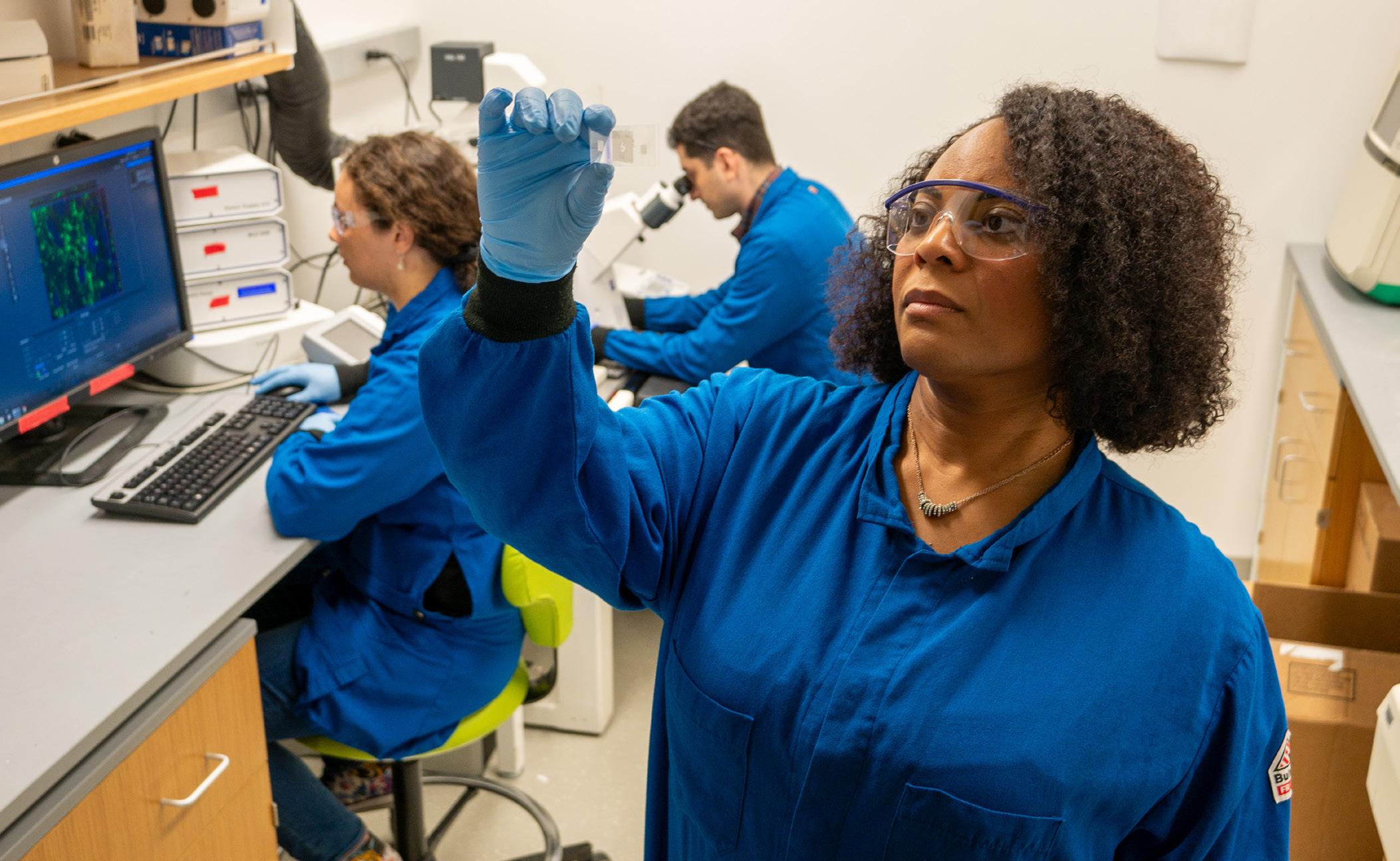
The Michael B. Silevitch and Claire J. Duggan Center for STEM Education assists dozens of faculty each year with federal grant proposals that require a plan for benefiting society through STEM education or outreach. These efforts have contributed to research awards of $28 million in the past decade.
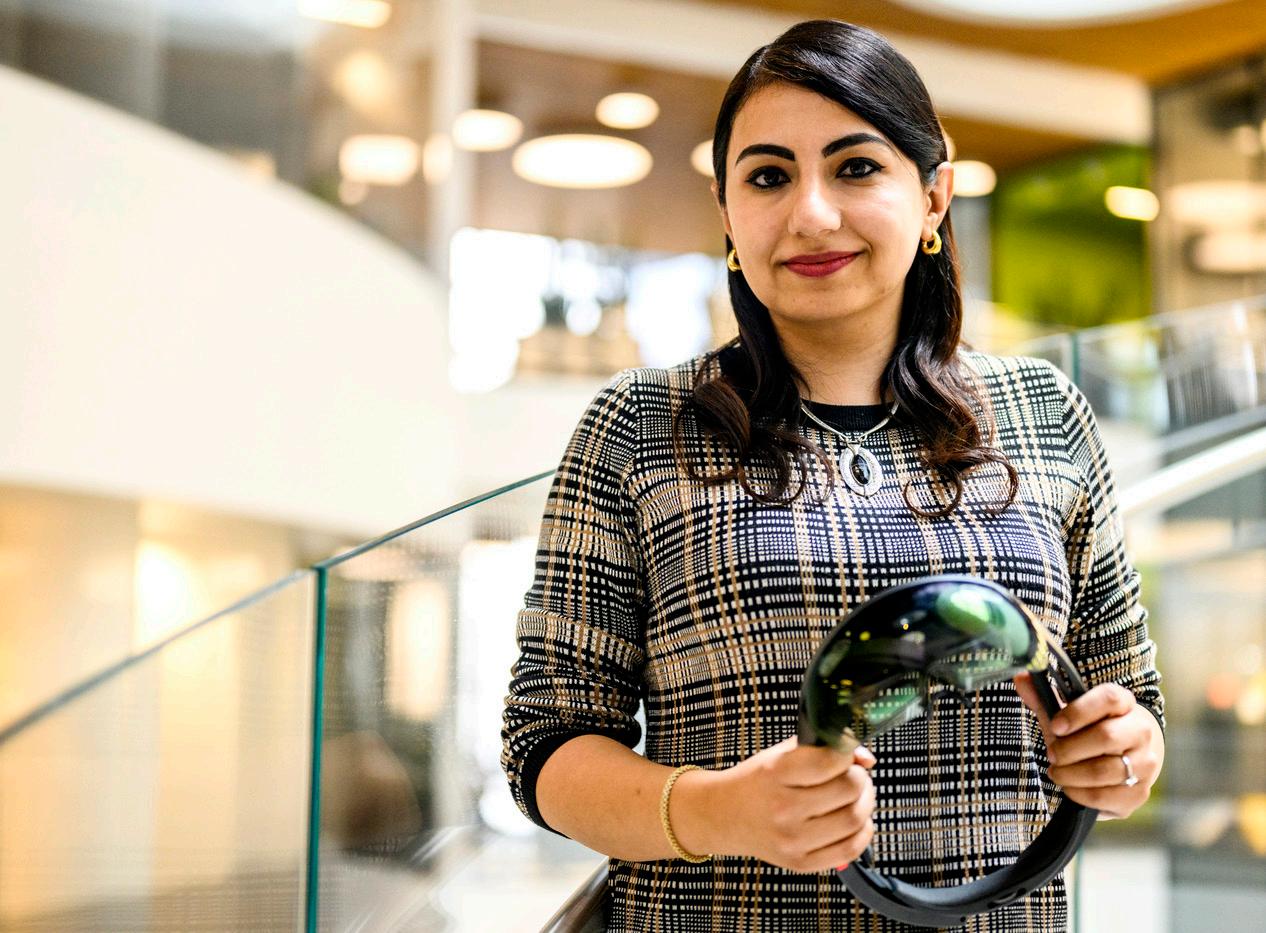
Ebong says she appreciates the “comprehensive” assistance Duggan provided. At first, Ebong found the Broader Impact information “overwhelming.” But Duggan helped her adapt the requirements to her goals, including coaching and mentoring students in her lab.
“We can all do more when we have a coach or someone to guide us along the way,” Ebong says. N
Photo by Bella Martinez/Northeastern University Photo by Matthew Modoono/Northeastern University
Despite decades of scattered efforts to improve diversity in engineering, the number of women and people of color remain far below their representation in the U.S. population. Northeastern’s College of Engineering, and other regional engineering colleges, and now in partnership with the American Society for Engineering Education (ASEE), was awarded in 2021 a $10 million, five-year grant from the National Science Foundation INCLUDES Alliance for the Engineering PLUS (Partnerships Launching Underrepresented Students) Alliance.
Diversity fuels innovation and invention, and U.S. competitiveness. Engaging industry leaders is essential for both training the pipeline and funding a sustainable national effort. Northeastern’s close ties with industry through our co-op program, as well as our connections in communities across the country with our network of campuses will help foster these partnerships.”
Gregory D. Abowd Dean of the College of Engineering, Northeastern UniversityThe goal of Engineering PLUS is to create networked communities to build an inclusive infrastructure that will drive the transformative, systemic, and sustainable change needed to increase the annual number of Black, Indigenous, other people of color (BIPOC), and women earning undergraduate/graduate degrees in engineering to 100,000/30,000 by 2026.
“We as a nation have made significant efforts in broadening participation in STEM education; yet, we have failed to consistently leverage the evidence-based, high-impact practices needed to drive systemic change,” says Richard Harris, associate dean for diversity, equity, and inclusion, and director of the NU Program In Multicultural Engineering (NUPRIME) for the College of Engineering.
“Our goal is to scale up things that are already working, not reinvent the wheel,” says Michael Silevitch, Robert D. Black College of Engineering Distinguished Professor of Electrical and Computer Engineering. “We are identifying strategies that work and have momentum, then expanding them regionally and across the nation.”
To do this, Engineering PLUS is creating a regional structure that is both sustainable and can be replicated nationally. Five regional hubs helmed by leaders of the NSF Louis Stokes Alliances for Minority Participation are creating collective alliances of 500 networked universities, community colleges, and K-12 schools, with national and regional advisory boards of industry, federal, and nonprofit stakeholders. The hubs share best practices and promote cross-campus student engagement in research and industrial learning to advance a more diverse engineering workforce.
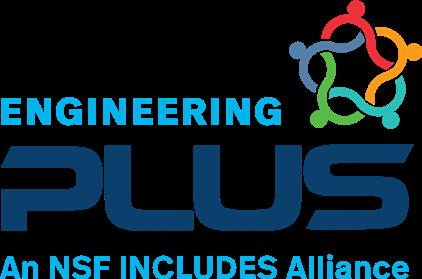

Engineering PLUS is one of 17 NSF INCLUDES Alliances—and the only one focused on engineering. NSF INCLUDES is a nationwide initiative designed to build U.S. leadership in science, technology, engineering, and mathematics (STEM) by increasing the participation of individuals from groups that have been historically underrepresented in STEM.

Within each hub, stEm PEERS (Practitioners Enhancing Engineering Regionally) trained by the stEm PEER Academy, become change agents who accelerate the implementation of high-impact, evidence-based practices within their home institutions at universities, high schools, community colleges, and businesses. The goal is 400 members by 2026. Two PEER Academy cohorts are complete with the third cohort poised for 2024.
Keisha Norris, assistant director of advising and student initiatives for the College of Engineering at Miami University in Oxford, Ohio, was a member of the first PEER Academy cohort. “It gave me a sense of community; it was helpful to know these are issues we are all trying to address,” Norris says.
She credits the stEm PEER Academy, led by Claire Duggan, executive director of the Michael B. Silevitch and Claire J. Duggan Center for STEM Education for the College of Engineering, for her successful implementation of retention programs for women and students of color in their first and second years, including a living-and-learning community with housing.
“I learned a lot about sustainability and creating something that will last, no matter what the funding source is or if I am here or not,” Norris says. “We are creating STEM programs that have the legs to continue.”
“Diversity fuels innovation and invention, and U.S. competitiveness. Engaging industry leaders is essential for both training the pipeline and funding a sustainable national effort. Northeastern’s close ties with industry, through our signature cooperative education program with more than 3,000 engineering employer partners, as well as our connections in communities across the country through our network of campuses, will help foster these partnerships,” says Gregory D. Abowd, dean of the College of Engineering, and principal investigator of Engineering PLUS.
Engineering PLUS works in cooperation with existing organizations such as the NSF Louis Stokes Alliance for Minority Participation (LSAMP), the National Action Council for Minorities in Engineering (NACME), and representative members of other organizations that support Black, Latinx, Native American, and women engineering students.
“There are pockets of successful engineering diversity programs that are siloed across the nation,” says Harris. “We need to align and integrate these initiatives systematically to create a transformative and sustainable approach to K-PhD education nationally.” N
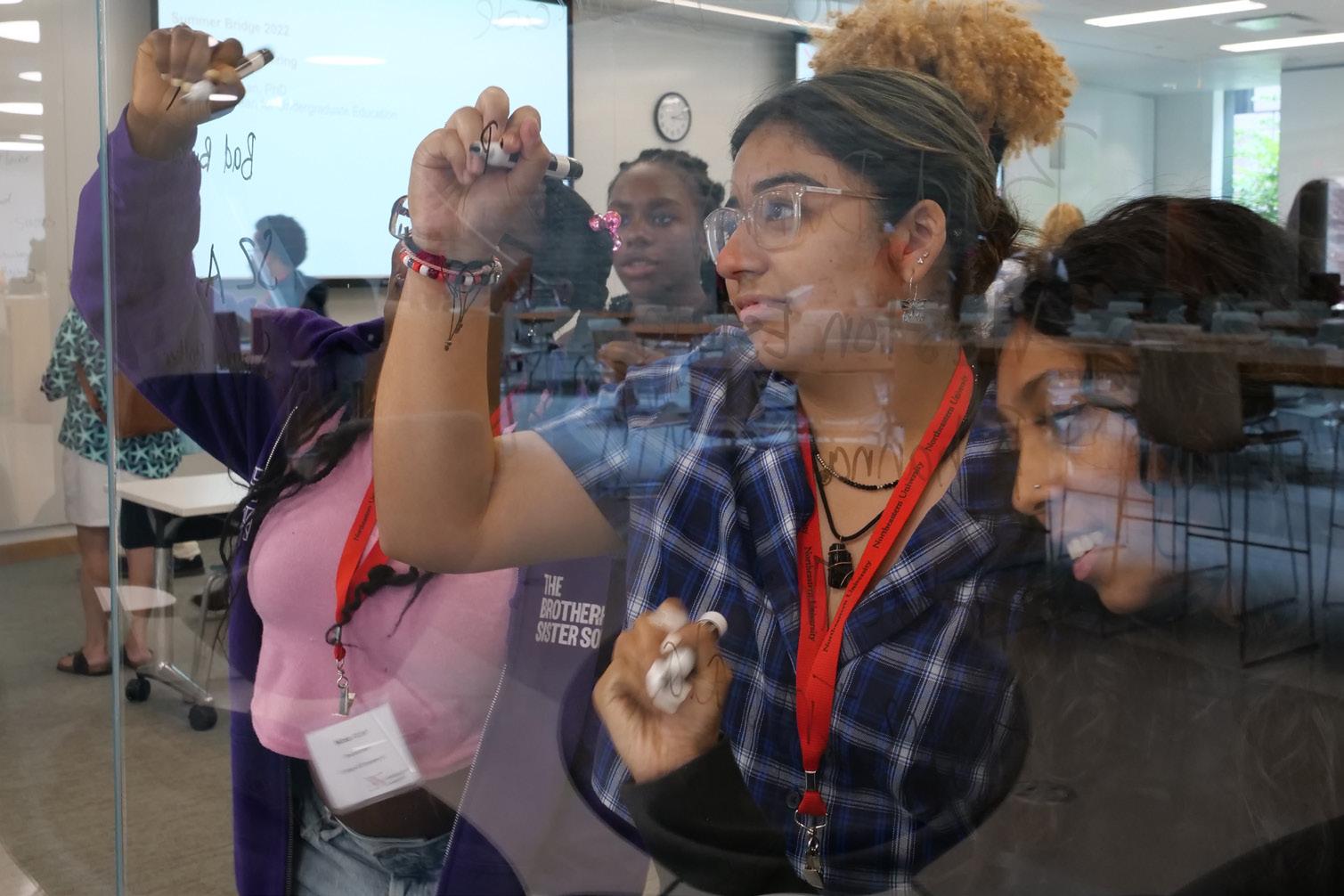
Growing up in Boston, Franklin Ollivierre, E’26, civil engineering, was familiar with Northeastern from seeing sports games and school trips to campus in high school. He also participated in the Young Scholars Program, a six-week free summer program with a focus on research for rising high school seniors. These experiences and the co-op program led him to apply and select Northeastern and engineering for his college years.
As part of the Young Scholars Program, Ollivierre was paired with Michael Kane, associate professor of civil and environmental engineering, for a research project about powering remote islands with renewable energy and microgrids. Learning about research from faculty, combined with getting guidance from Northeastern students supporting the program, made so much of an impact on Ollivierre that he became a co-coordinator for the program for the summers before his first and second years as a Northeastern student. Among many tasks that built his leadership skills, he participated in direct mentorship of students by having one-on-one progress checks to get a sense of how their research skills were developing. “That was amazing to me because it was full circle,” Ollivierre says. “The Center for STEM Education has continued to evolve and innovate, maintaining its signature program of guiding students through their research at Northeastern, but also by helping them craft college essays, prepare for applications, and discover potential career paths through company field trips.”
As a first-year student in the College of Engineering, Ollivierre was selected for the UPLIFT (Undergraduate Program for Leaders In Future Transformation) research program. During his first semester, he was paired with Jim Chen, professor of civil and environmental engineering, jointly appointed in marine and environmental sciences, to explore unique models for measuring ocean erosion.
With his academics and experience, Ollivierre secured a transportation engineering co-op at VHB focused on highway design. Now on his second co-op at HDR as a transportation planning intern, he is developing planning skills related to travel demand modeling. “Seeing these projects in a different way helps me understand how the development of projects really works,” Ollivierre says.
Though his Northeastern journey is far from over, Ollivierre has had plenty of support and inspiration. When asked who has inspired him the most, the first person who came to mind was Claire Duggan, executive director of the Michael B. Silevitch and Claire J. Duggan Center for STEM Education. “She’s really helped not just me, but so many different people in the STEM space,” Ollivierre says.
Ollivierre has further developed leadership skills as the 2023-2024 communications chair of Northeastern’s chapter of the National Society of Black Engineers (NSBE), called the Black Engineering Student Society, or BESS.
“The mission of BESS is to increase the number of culturally responsible Black engineers who excel academically, succeed professionally, and positively impact the community,” Ollivierre says. “Being able to exude that through the social media accounts that we have increases visibility on-campus.”
He says that being in the company of people with similar experiences to his is validating. “It’s very affirming that there’s people who have my back in a profession that doesn’t have too many of us, but we’re increasing in numbers,” Ollivierre says.
Ollivierre is also a National Action Council for Minorities in Engineering (NACME) scholar, which he attributes to the mentorship of Richard Harris, associate dean for diversity, equity, and inclusion for the College of Engineering, and director of the NU Program In Multicultural Engineering (NUPRIME).
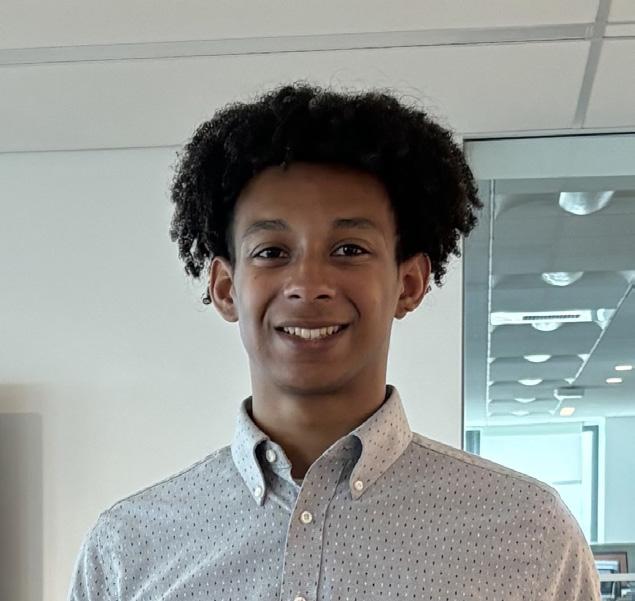
Don’t be afraid to do new things and take advantage of all the resources provided to you wherever you go.”
Franklin Ollivierre, E’26 Civil Engineering “
“Dean Harris has created many opportunities for me to explore my passions and become a leader in the Black engineering space, and he has always looked out for me,” says Ollivierre.
The NACME scholarship is awarded to Black and Latino students who are pursuing engineering careers to recognize their excellence. Ollivierre’s proud to represent other Black engineers as a NACME scholar, and occasions such as the NSBE convention have given him the opportunity to be part of a community of fellow scholars.
“Last year, I went to the [convention] in Kansas City, and I was able to meet other NACME scholars who are way into their careers and professions,” Ollivierre says. “I was able to talk to them and ask them about what it took for them to be in the profession.”
The best advice Ollivierre’s fellow scholars could give him was to embrace the community and surround himself with supporters, something he took to heart. He was also awarded the Class of 1948 Civil Engineering Alumni Scholarship.
After graduation, Ollivierre’s ultimate career goal is to advocate for transportation justice and sustainability through his work. With the wealth of opportunities he has seized, Ollivierre’s advice for incoming engineering students is short but sweet. “Don’t be afraid to do new things and take advantage of all the resources you have provided to you wherever you go,” he says. N
With over 230 tenured/tenure-track faculty and 20 multidisciplinary research centers and institutes with funding by eight federal agencies, the College of Engineering is a leader in experiential education and interdisciplinary research with a focus on innovating to address global challenges for societal impact. Northeastern’s global university system—with engineering programs on campuses across the U.S. and in multiple countries—provides flexible academic offerings, innovative partnerships, and the ability to scale ideas, talent, and solutions.
Founded in 1898, Northeastern is a global research university and the recognized leader in experiential lifelong learning. Our approach of integrating real-world experience with education, research, and innovation empowers our students, faculty, alumni, and partners to create worldwide impact.
Northeastern’s personalized, experiential undergraduate and graduate programs lead to degrees through the doctorate in 10 colleges and schools across our 13 campuses worldwide. Learning emphasizes the intersection of data, technology, and human literacies, uniquely preparing graduates for careers of the future and lives of fulfillment and accomplishment.
Our research enterprise, with an R1 Carnegie classification, is solutions oriented and spans the world. Our faculty scholars and students work in teams that cross not just disciplines, but also sectors— aligned around solving today’s highly interconnected global challenges and focused on transformative impact for humankind.
360 Huntington Avenue
The Summer Bridge Scholars program at Northeastern University began in 2002 in the College of Engineering to address the need to better support accepted undergraduate engineering students from historically underrepresented populations in their transition to college. Today it is a universitywide program and serves as a model for other institutions. See page 10.
by Matthew Modoono/Northeastern University